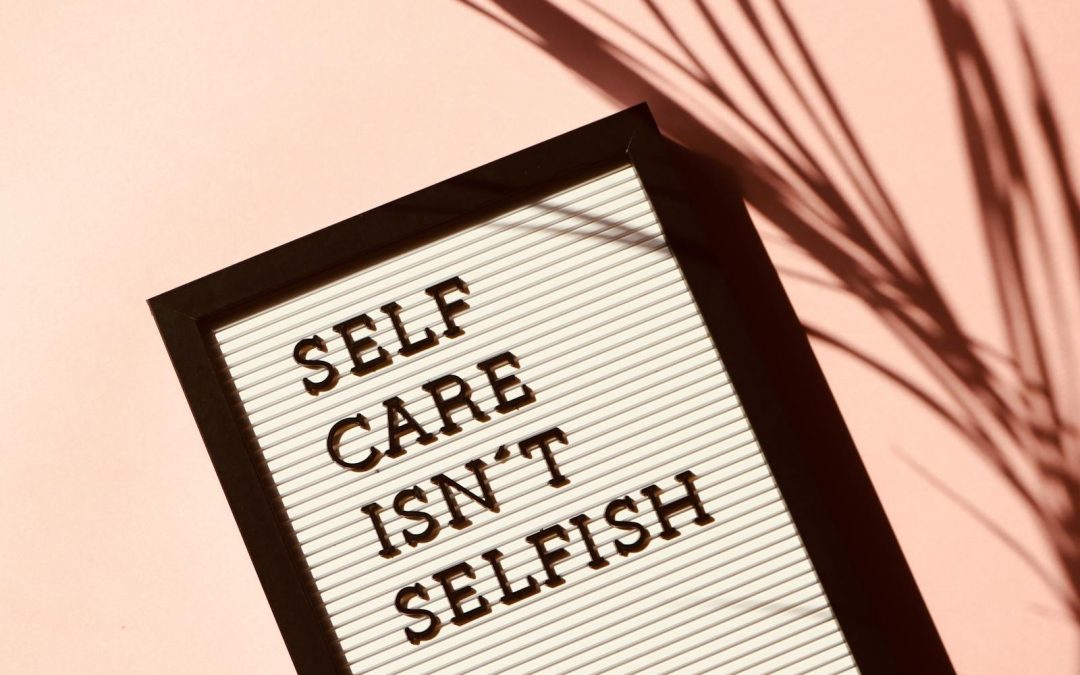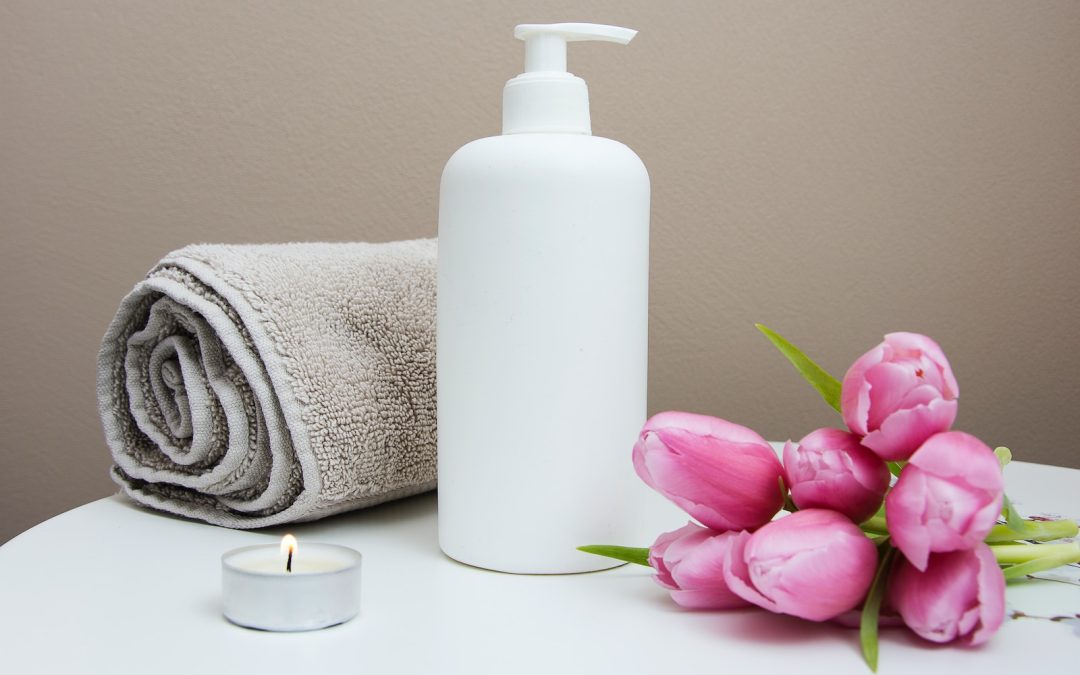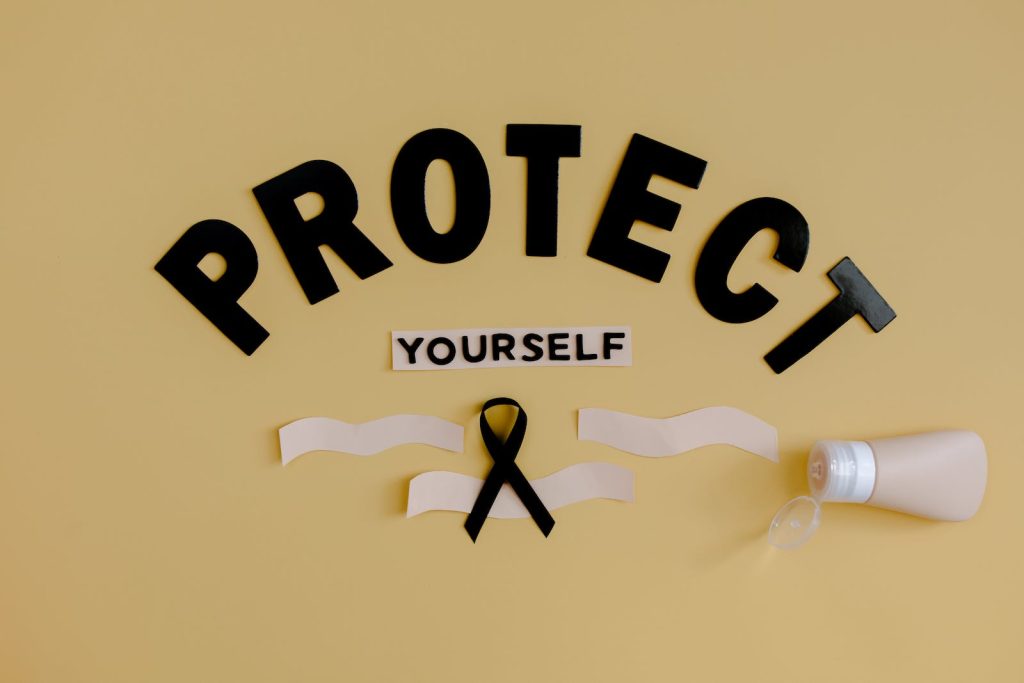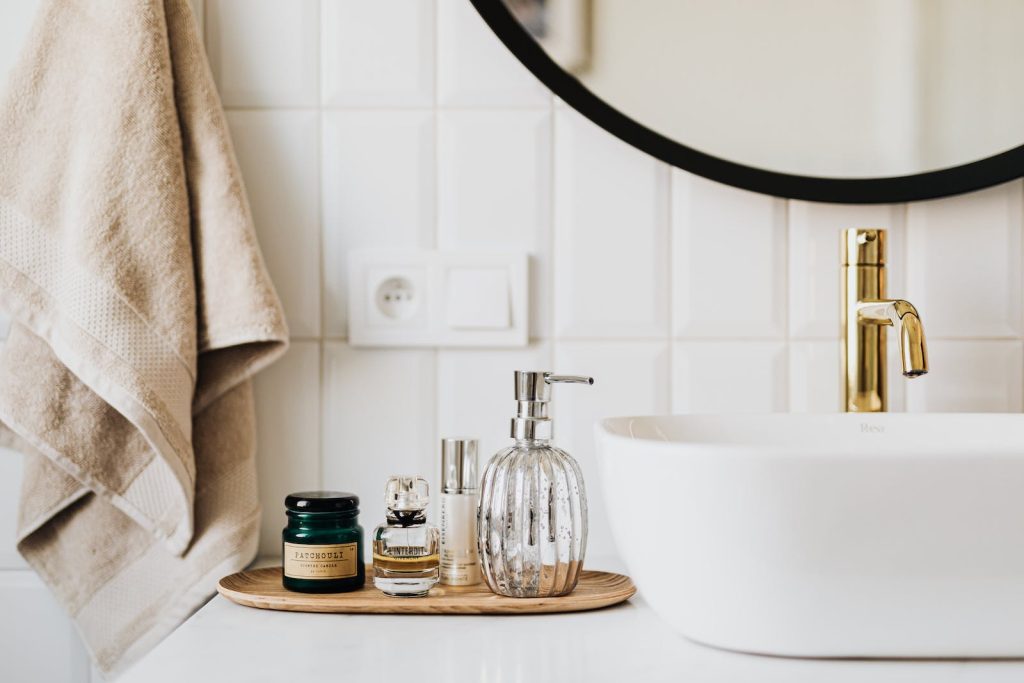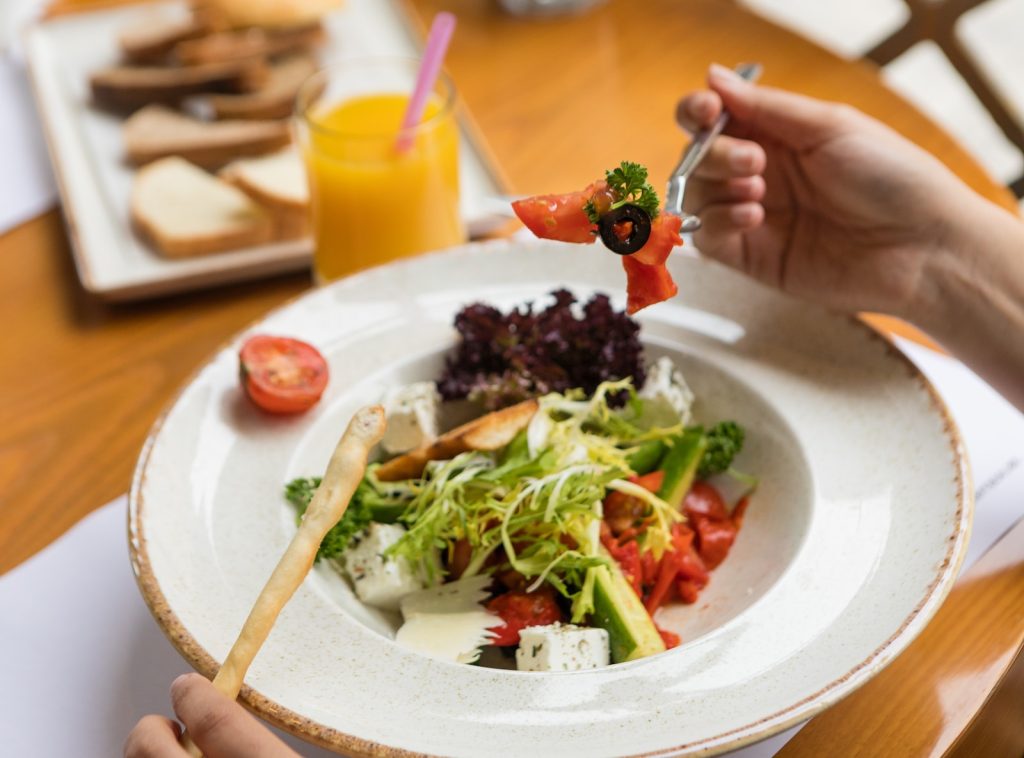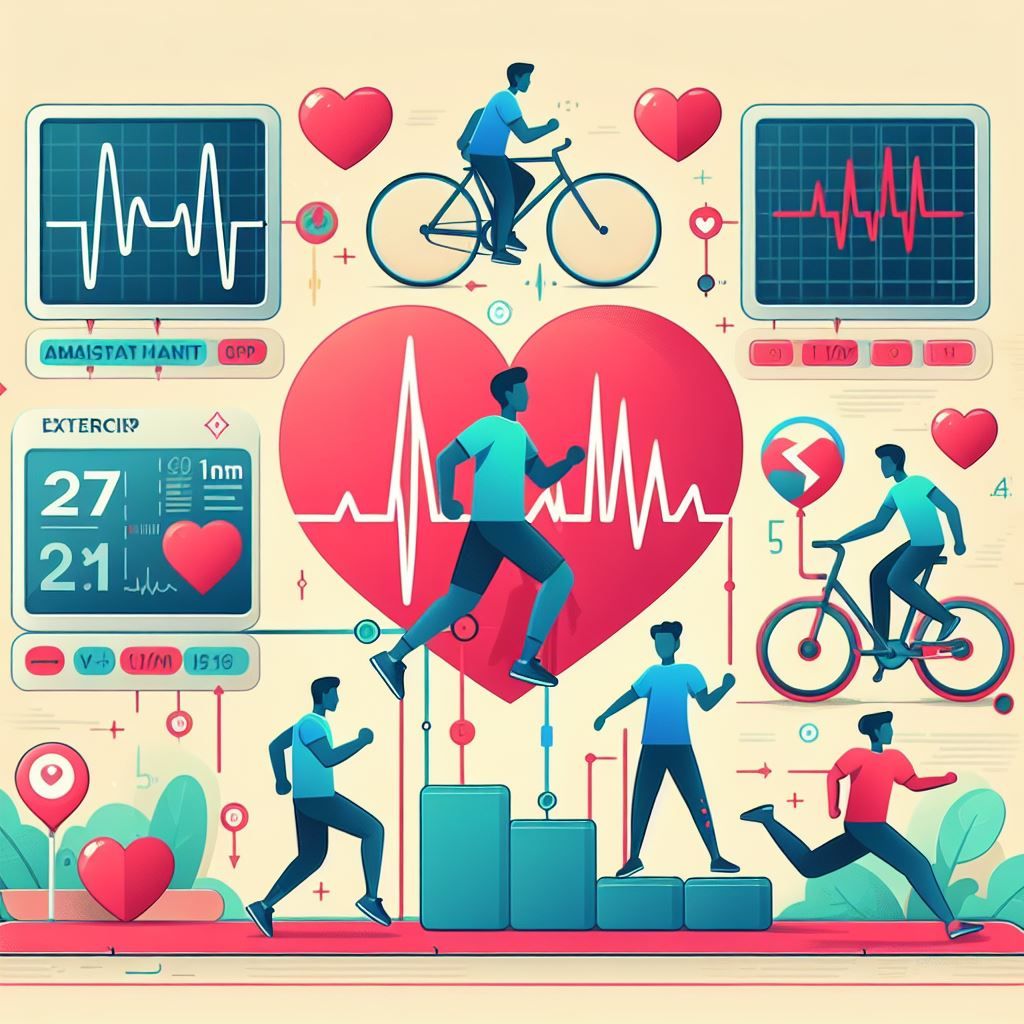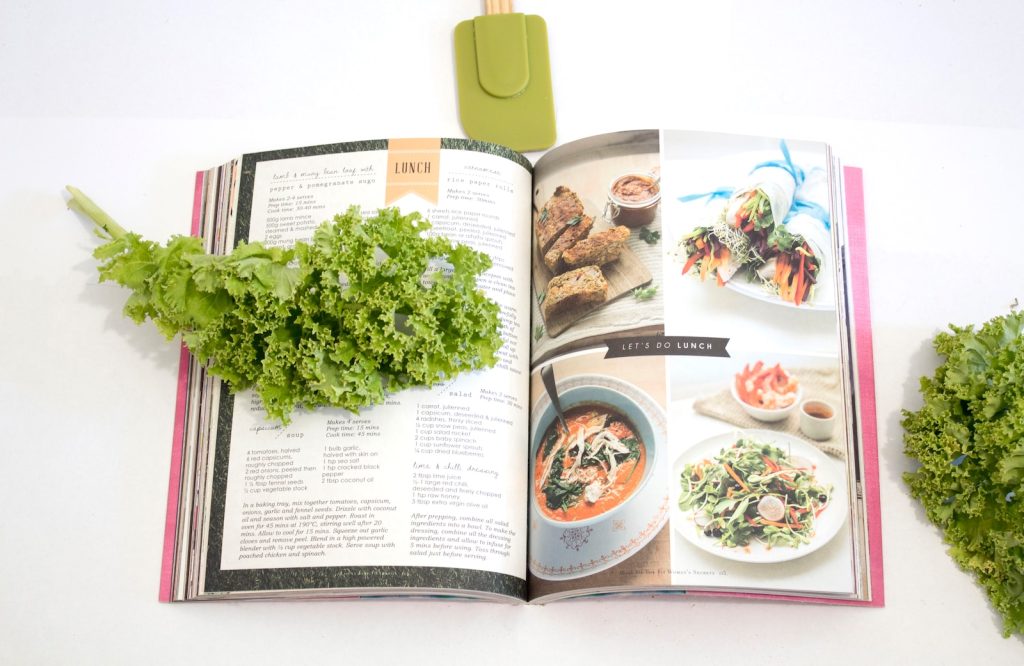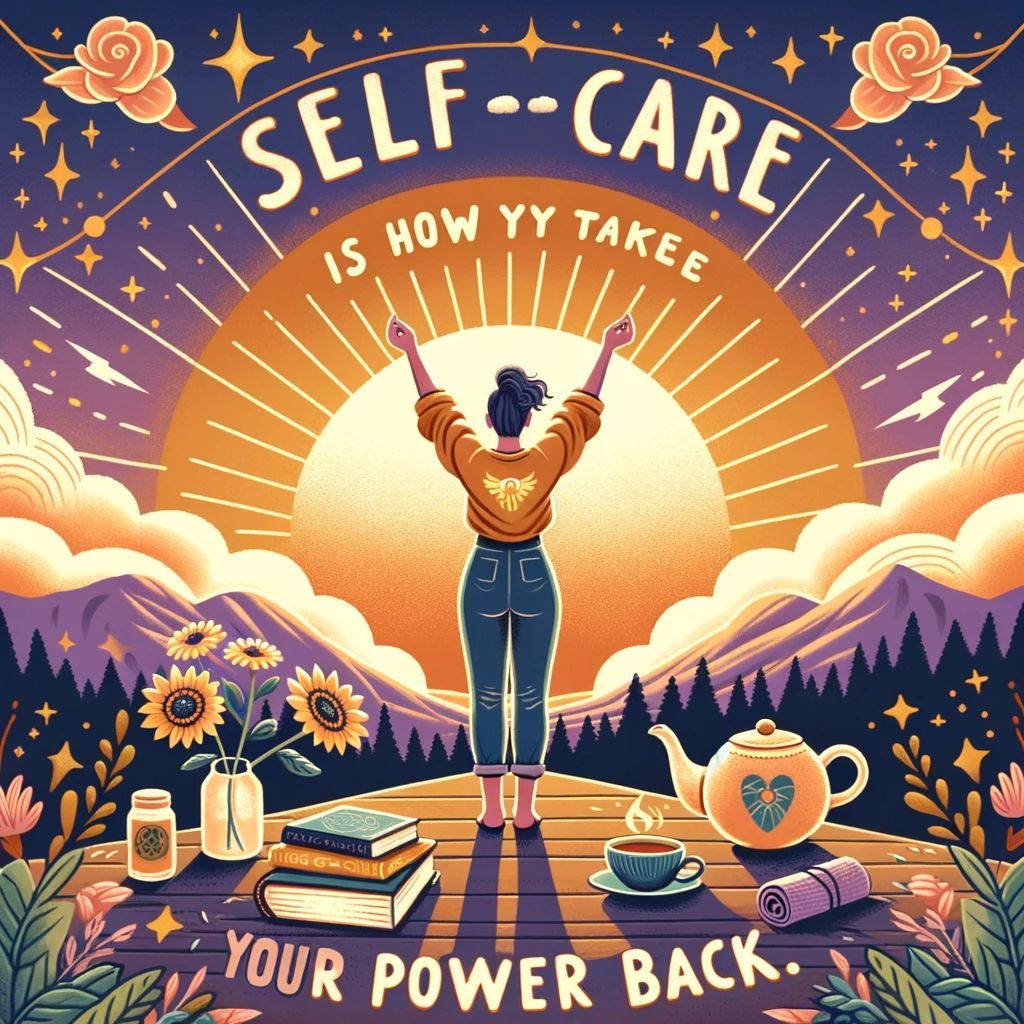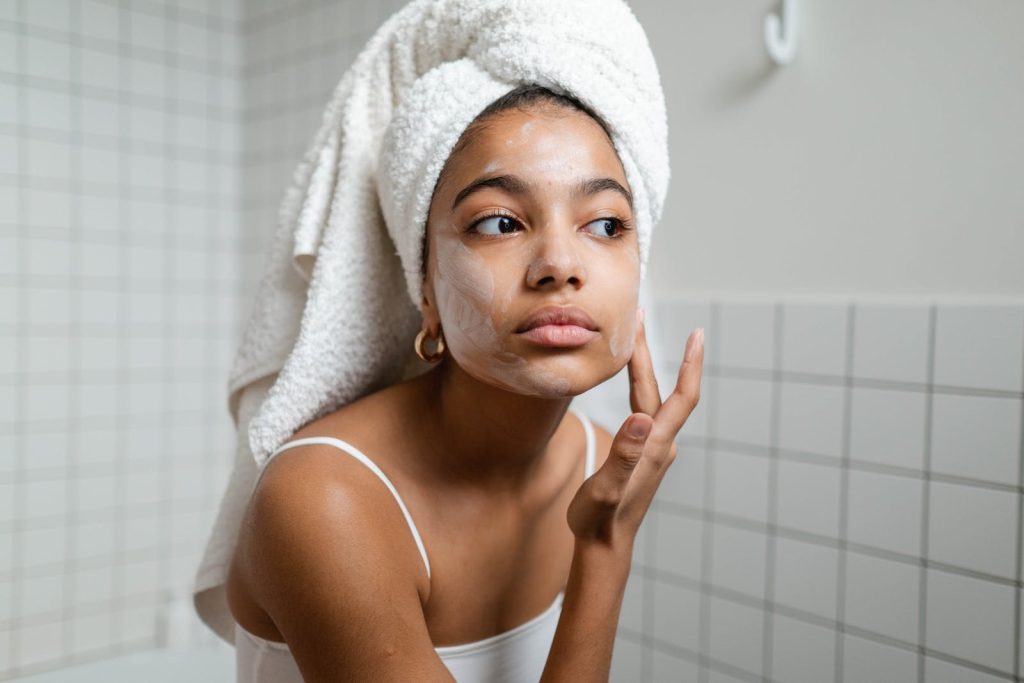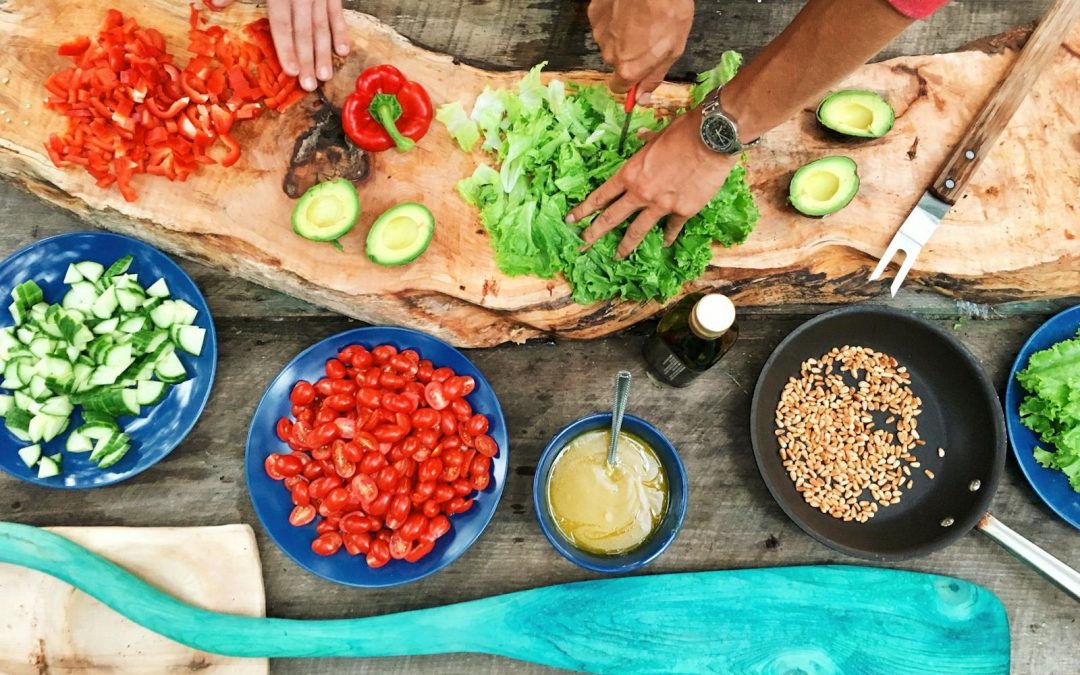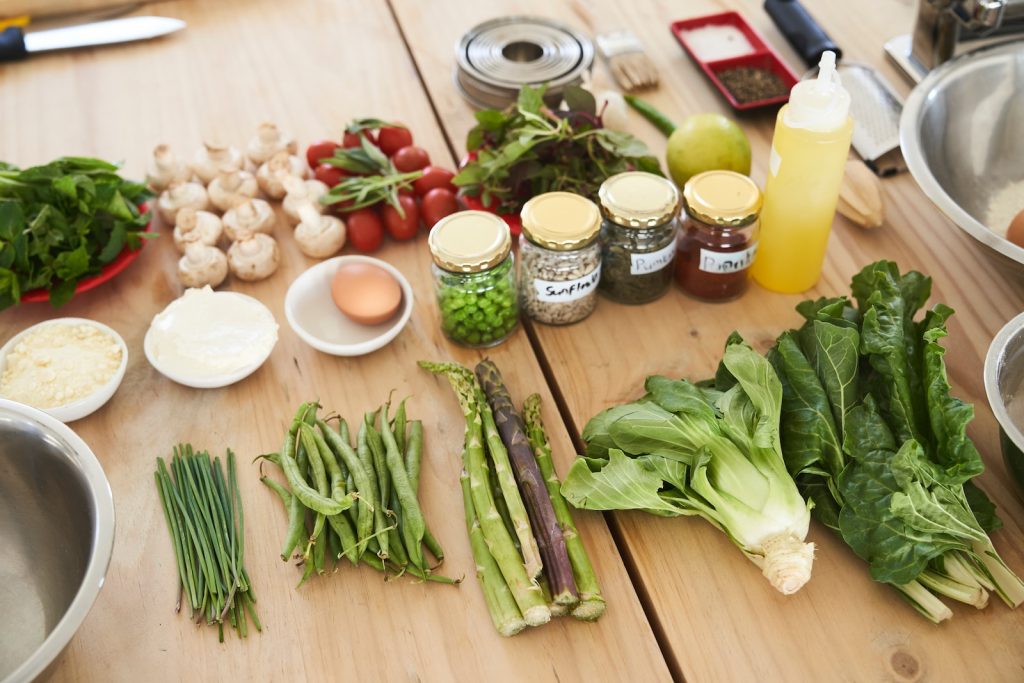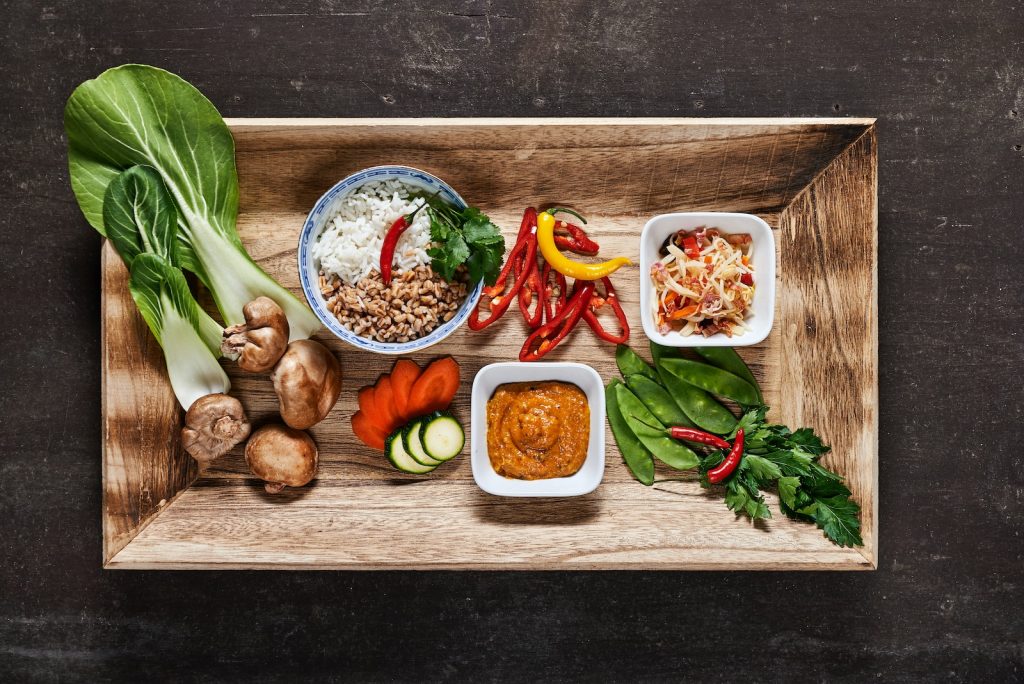
by Health And Healing AI | Apr 23, 2024 | Self-Care
Strategies Self-Care for Balance in a Busy World

Self-care is not a luxury; it’s a necessity to create boundaries. Photo by Content Pixie
Prioritizing Self-Care in a Busy World: Are you overwhelmed and stressed by the demands of your busy life? It’s easy to get caught up in the hustle and bustle of daily life and forget to take care of yourself. However, prioritizing self-care is essential for your mental and physical well-being. This article will explore strategies for finding balance and prioritizing self-care in a busy world.
Self-care is not a luxury; it’s a necessity. When you care for yourself, you’re better equipped to handle life’s challenges with resilience and positivity. But with so many demands on your time and energy, it can be hard to know where to start. That’s why we’ve compiled a list of practical strategies to help you prioritize self-care and find balance in your busy life.
From creating boundaries to incorporating rituals, there are many ways to nurture your mind, body, and soul. We’ll explore the importance of acknowledging your needs and offer tips for practicing self-compassion and resilience. Remember, finding balance is an ongoing journey, but with the right tools and mindset, you can prioritize self-care and live a happier, healthier life.
Understanding Self-Care
Prioritizing Self-Care in a Busy World: Self-care has gained popularity in recent years as people become more aware of the importance of physically, mentally, and emotionally caring for themselves. It refers to any intentional actions you take to care for your well-being. This section will define self-care, discuss its benefits, and dispel common misconceptions.
Defining Self-Care
Self-care encompasses a wide range of activities that promote well-being. It can include anything from taking a relaxing bath to engaging in regular exercise. The key is that these activities intentionally focus on improving your physical, mental, or emotional health. Self-care is not selfish but essential to maintaining a healthy and balanced life.
Benefits of Self-Care
Prioritizing self-care has numerous benefits. It can reduce stress, improve mood, increase energy levels, and boost overall health. When you take care of yourself, you are better equipped to handle the challenges of daily life. Additionally, self-care can improve your relationships with others by helping you feel more centered and grounded.
Common Misconceptions
Several misconceptions about self-care can prevent people from prioritizing it. One common misconception is that self-care is selfish. However, taking care of yourself is not selfish; it is necessary for your well-being and those around you. Another misconception is that self-care is only for people with much free time. In reality, even small acts of self-care, such as taking a few minutes to meditate or stretch, can significantly impact your overall well-being.
In summary, self-care is essential to maintaining a healthy and balanced life. It encompasses many intentional activities that promote physical, mental, and emotional well-being. By prioritizing self-care, you can reduce stress, improve mood, increase energy levels, and boost overall health. Don’t let common misconceptions prevent you from taking care of yourself; even small self-care acts can significantly impact your well-being.
Assessing Your Needs
When prioritizing self-care, it’s important first to assess your needs. This involves taking a closer look at the different areas of your life and identifying the stressors affecting your well-being. By doing so, you can start to develop strategies for balance that work for you.
Identifying Stressors
The first step in assessing your needs is to identify your stressors. This can include anything from work-related stress to relationship issues or financial concerns. By understanding what is causing you stress, you can start to take steps to address these issues and reduce their impact on your well-being.
Setting Personal Boundaries
Another critical aspect of assessing your needs is setting personal boundaries. This means being clear about your limits and priorities and saying no to things that don’t align with your values or goals. By setting boundaries, you can create more space for self-care and reduce the stress and overwhelm from trying to do too much.
Self-Care Assessment Tools
To get a better sense of your self-care needs, you may want to consider using self-care assessment tools. These can help you identify areas where you may neglect your well-being and suggest improvement. Some popular self-care assessment tools include the Self-Care Wheel and the Self-Care Assessment Worksheet.
Overall, assessing your needs is a critical first step in prioritizing self-care. By taking the time to identify your stressors, set personal boundaries, and use self-care assessment tools, you can start to develop strategies for balance that work for you.
Time Management Techniques
When it comes to prioritizing self-care, effective time management techniques are essential. By managing your time well, you can ensure enough time for self-care activities and still get your work done. Here are some time management techniques that you can use to balance your busy schedule:
Effective Planning
Effective planning is the key to managing your time well. Create a to-do list for the day or week and prioritize your tasks. Use a planner or calendar to schedule your activities and appointments. Break down larger tasks into smaller ones and set deadlines for each. This will help you stay organized and on track.
Delegation Strategies
Delegation is an effective time management technique that can help free up time for self-care activities. Identify tasks that can be delegated to others, whether at work or home. Delegating tasks can help you focus on more important tasks and reduce your workload.
Saying No
Prioritizing Self-Care in a Busy World: Saying no is a critical time management technique that can help you prioritize self-care. Learn to say no to tasks or activities that don’t align with your priorities or goals. Setting boundaries and protecting your time can be challenging but essential. Saying no can help you avoid overcommitting and feeling overwhelmed.
Using these time management techniques, you can prioritize self-care and find balance in a busy world. Remember to be flexible and adjust your schedule as needed. With adequate time management, you can take care of yourself and still achieve your goals.
Self-Care Practices
Taking care of yourself is essential to maintain your overall well-being. Here are some self-care practices that you can incorporate into your daily routine:
Physical Activities
Physical activities are a great way to boost your mood and health. Regular exercise helps you stay fit and releases endorphins, natural mood boosters. You can try different physical activities such as jogging, yoga, or dancing. Find an activity you enjoy and make it a part of your daily routine.
Mindfulness and Relaxation
Mindfulness and relaxation techniques can help reduce stress and anxiety. You can practice mindfulness by focusing on your breath, body, or surroundings. Meditation, deep breathing, and progressive muscle relaxation are some relaxation techniques that you can try. Taking short breaks throughout the day to practice mindfulness or relaxation can help you stay calm and focused.
Nutrition and Sleep
Eating a balanced diet and getting enough sleep are crucial for physical and mental health. Eat nutritious meals that include fruits, vegetables, whole grains, and lean proteins. Avoid processed foods and sugary drinks. Getting enough sleep is also vital for your overall well-being. Aim for 7-8 hours of sleep each night and establish a consistent sleep routine. Avoid using electronic devices before bedtime, and create a relaxing environment in your bedroom.
Incorporating these self-care practices into your daily routine can help you prioritize your well-being and find balance in a busy world. Remember, self-care is an ongoing practice, so make it a priority.
Psychological Self-Care
Regarding self-care, it’s essential not to overlook your psychological well-being. Addressing your mental health needs can be as important as taking care of your physical health. Here are some strategies for psychological self-care that you can try:
Positive Self-Talk
One way to promote good mental health is by practicing positive self-talk. This involves replacing negative thoughts with positive ones. For example, instead of thinking, “I can’t do this,” try telling yourself, “I can do this, and I will do my best.” By reframing your thoughts in a positive light, you can boost your confidence and self-esteem.
Therapy and Counseling
Another way to prioritize your psychological well-being is by seeking therapy or counseling. Talking to a mental health professional can help you work through issues that may be causing stress or anxiety. A therapist can also provide you with coping strategies and tools to help you manage your mental health.
Stress-Reduction Techniques
Stress can damage mental health, so it’s essential to find ways to manage it. Many stress-reduction techniques, such as meditation, deep breathing, or yoga, can help you relax and reduce feelings of anxiety.
Taking care of your mental health is as important as your physical health. By practicing positive self-talk, seeking therapy or counseling, and using stress-reduction techniques, you can prioritize your psychological well-being and achieve balance.
Social Support Systems
In a busy world, feeling isolated and disconnected from others is easy. However, having a solid social support system is crucial for maintaining your well-being and finding balance. Here are some strategies for building and maintaining social support systems.
Building a Support Network
One way to build a support network is to contact family and friends. Make time for regular phone calls, video chats, or in-person visits. Communicating openly and honestly with your loved ones about your needs and feelings is essential.
Another way to build a support network is to join a group or club that aligns with your interests. This can be a great way to meet new people who share your passions and hobbies. Look for local groups on social media or community bulletin boards.
Community Involvement
Getting involved in your community can also help you build a support network. Volunteering for a local organization is a great way to meet new people and give back to your community. It can also be a way to learn new skills and gain valuable experience.
Attending community events, such as festivals, concerts, or farmers markets, can also be a way to connect with others. Take advantage of these opportunities to start conversations with people and make new friends.
Maintaining Relationships
Maintaining relationships takes effort, but it’s worth it. Make time for your loved ones and prioritize your relationships. Schedule regular date nights with your partner or outings with friends.
It’s also essential to communicate effectively with your loved ones. Practice active listening and express your feelings clearly and respectfully. Remember, relationships are a two-way street, so be open and receptive to feedback from others.
Building and maintaining a robust social support system can balance your busy life and maintain your well-being.
Work-Life Balance
Prioritizing Self-Care in a Busy World: Finding a balance between work and personal life can be challenging but essential for overall well-being. Here are some strategies to help you prioritize self-care and achieve a better work-life balance.
Setting Work Boundaries
Setting boundaries between your work and personal life is crucial for achieving balance. One way to do this is to establish set work hours and stick to them as much as possible. Communicate these hours to your colleagues and clients so they know when you are available and when you are not.
Another way to set boundaries is to turn off notifications and emails outside work hours. This will help you disconnect from work and focus on your personal life. Additionally, consider delegating tasks or saying no to projects that don’t align with your priorities or workload.
Remote Work Challenges
Separating work and personal life has become even more challenging with the rise of remote work. When working from home, creating a designated workspace separate from your living space is vital. This will help you mentally separate work from personal life.
Another challenge of remote work is the lack of social interaction. To combat this, consider scheduling virtual coffee breaks or lunch meetings with colleagues to stay connected.
Career Satisfaction
Finding career satisfaction is an essential component of work-life balance. If you feel unfulfilled in your job, this can spill over into your personal life. Consider taking a skills assessment to identify areas of interest and explore new career paths. Additionally, seek out opportunities for growth and development within your current role.
Remember, finding a work-life balance is a journey, not a destination. By setting boundaries, addressing remote work challenges, and finding career satisfaction, you can prioritize self-care and better balance work and personal life.
Technology and Self-Care
Technology has become integral to our daily lives in today’s fast-paced world. From smartphones to laptops, we are constantly connected to the digital world. While technology has made our lives easier in many ways, it can also be a source of stress and anxiety. However, technology can promote self-care and well-being with the right approach. Here are some ways you can use technology to prioritize self-care:
Digital Detoxing
Sometimes, the best way to prioritize self-care is by disconnecting from technology altogether. Digital detoxing involves taking a break from technology and unplugging from the digital world. This can help reduce stress, improve sleep, and increase mindfulness. First, try setting aside a specific time to disconnect from your devices daily. This could be an hour before bed or during meal times. You can also try taking a digital detox vacation, where you unplug and disconnect for a set period.
Online Support Groups
Technology can also be a great way to connect with others and find support. Online support groups can provide a sense of community and help you feel less alone. There are many online support groups available for a variety of issues, from mental health to chronic illness. You can also find support through social media groups or forums. Just be sure to prioritize your mental health and well-being by setting boundaries and avoiding toxic or triggering content.
Health Apps and Trackers
There are many health apps and trackers available that can help you prioritize self-care. From meditation apps to fitness trackers, these tools can help you stay on track and reach your goals. For example, a mindfulness app can help you practice meditation and reduce stress, while a fitness tracker can help you stay active and reach your fitness goals. Just be sure to choose apps and trackers that align with your values and goals, and don’t become too reliant on technology for your well-being.
Incorporating technology into your self-care routine can be a great way to prioritize your well-being in a busy world. By taking a mindful approach and using technology to align with your values and goals, you can promote self-care and find balance in your daily life.

by Health And Healing AI | Dec 26, 2023 | Self-Care
Unlock the Secrets of Holistic Skincare – Transform Your Routine Today

A woman with a smiling expression faces a multitude of skincare options and advice in a bright illustration.
Holistic Skincare Tips: In a world where beauty aisles overflowed with an array of skincare products, each promising the ultimate solution, my bathroom cabinet was an eclectic collage of bottles and jars.
It resembled a mad scientist’s laboratory rather than a sanctuary for self-care.
The quest for perfect skin felt like chasing shadows, and I yearned for something more authentic, more akin to a serene ritual than a chaotic experiment.
One day, amidst the chaos, I stumbled upon a whisper in the skincare world—an enchanting tale of holistic skincare. It beckoned like a long-lost secret, a buried treasure hidden beneath layers of glossy marketing and quick fixes.
It was no ordinary story; it was a narrative woven with the threads of natural beauty secrets and a promise that went beyond skin deep. It was an invitation to embark on a journey of transformation.
As I ventured into this uncharted territory, I was greeted by the soothing melodies of chirping birds and the soft caress of a gentle breeze.
The landscape transformed into a lush, verdant garden with vibrant blooms and radiant butterflies.
My skincare routine became a cinematic experience, akin to stepping into a fairy tale.
The textures of natural ingredients felt like the touch of an artist’s brush on a canvas, creating a masterpiece on my skin.
Are you tired of trying different skincare products with little to no results?
Have you considered adopting a holistic approach to your skincare routine? Holistic skincare is a natural and healthy way to nourish your skin from the inside out.
It uses natural ingredients and lifestyle choices to promote well-being while achieving healthy skin.
A holistic skincare routine focuses on the connection between your skin and body.
It involves taking care of your body as a whole, including your physical, mental, and emotional health.
Adopting a holistic approach allows you to achieve healthy skin that glows from the inside out.
A holistic skin care routine includes natural ingredients, such as essential oils, plant extracts, and vitamins, that nourish and protect your skin.
Additionally, it involves making healthy lifestyle choices, such as eating a balanced diet, getting enough sleep, and managing stress.
Holistic Skincare Tips: This article will provide tips on revolutionizing your skincare routine holistically.
We will cover the benefits of holistic skincare, how to create a holistic skincare routine, and the best natural ingredients to use.
By the end of this article, you will have the knowledge and tools to achieve healthy, glowing skin with a holistic approach.
Understanding Holistic Skincare
Taking care of your skin is not just about using the right products.
It’s about adopting a holistic approach to skincare that considers your skin a reflection of your overall health.
Holistic skincare is a philosophy emphasizing the importance of nourishing your skin from the inside out. This section will explore holistic skincare philosophy and why your skin is your body’s largest organ.
The Philosophy of Holistic Skincare
Holistic skincare tips is a philosophy that takes a comprehensive approach to skincare.
It emphasizes that skincare is about using the right products and adopting healthy lifestyle habits that nourish your skin from the inside out.
This approach focuses on the whole person rather than just the skin. It considers factors such as nutrition, stress, and exercise, which can all impact your skin’s health.
Holistic skincare also emphasizes the use of natural and organic products. These products are free from harsh chemicals and toxins that can damage your skin.
They are made from natural ingredients that harmonize with your skin’s natural processes.
Using natural and organic products can avoid the adverse side effects of harsh chemicals and toxins, such as dryness, irritation, and inflammation.
Skin as the Largest Organ
Holistic Skincare Tips: Your skin is your body’s largest organ and is vital to your overall health.
It acts as a protective barrier, shielding your body from harmful environmental factors such as UV rays, pollution, and toxins.
It also regulates your body temperature and helps to eliminate waste products through sweat.
Because your skin is such a vital organ, taking care of it is essential. Adopting a holistic approach to skincare can help you achieve healthy, glowing skin that reflects your overall health.
By nourishing your skin from the inside out and using natural and organic products, you can help your skin function at its best.
Embrace Radiant Skin Naturally – Holistic Skincare Tips You Need

A smiling scientist with a jar and a pipette surrounded by various skin care products and makeup items.
Embrace Natural Ingredients: Opt for skincare products and remedies that use natural, organic ingredients to nourish your skin without harsh chemicals.
Mindful Cleansing: Cleanse your skin gently, avoiding harsh scrubs that can damage the skin’s natural barrier.
Balanced Diet: Maintain a diet rich in antioxidants, vitamins, and minerals to support healthy skin from the inside out.
Stay Hydrated: Drink plenty of water to keep your skin hydrated and plump.
Mind-Body Connection: Practice mindfulness and stress-reduction techniques like meditation to promote overall well-being, which reflects in your skin.
Simplify Your Routine: Avoid overloading your skin with too many products. Focus on a simple, productive routine tailored to your skin’s needs.
Sun Protection: Always use sunscreen to shield your skin from UV damage, a critical factor in premature aging.
Exfoliate Naturally: Opt for gentle exfoliation methods like fruit enzymes or natural scrubs to remove dead skin cells.
Holistic Treatments: Explore holistic treatments like facial massage and acupuncture to enhance circulation and promote skin health.
Listen to Your Skin: Pay attention to how your skin responds to products and adjust your routine accordingly. Your skin’s needs can change over time.
Building Your Holistic Skincare Routine

Scientist Discover True Beauty Inside and Out – Holistic Skincare Essentials
Holistic Skincare Tips: Building a holistic skincare routine is a great place to start if you want to revolutionize your skincare routine.
A holistic skincare routine is about caring for your skin from the inside out. It involves using natural ingredients, adopting healthy lifestyle choices, and focusing on your overall well-being.
Tips for holistic skincare to revolutionize your routine
Assessing Your Skin Type
The first step in building your holistic skincare routine is to assess your skin type.
It will help you choose the right products for your skin and avoid any potential irritations. There are four main skin types: normal, dry, oily, and combination.
To determine your skin type, you can do a simple test. Wash your face with a gentle cleanser and wait for an hour.
If your skin feels tight and dry, you have dry skin. If your skin feels oily, you have oily skin. If your skin feels both oily and dry, you have combination skin. If your skin feels balanced, you have normal skin.
Essential Steps in Skincare
Once you determine your skin type, you can build your holistic skincare routine. Here are some essential steps to include in your routine:
- Cleansing: Cleansing is an essential step in any skincare routine. It helps remove dirt, oil, and makeup from your skin, leaving it clean and refreshed. Choose a gentle cleanser that suits your skin type. You can use a foaming cleanser for oily skin, a cream cleanser for dry skin, and a gel cleanser for combination skin.
- Toner: Toner helps balance your skin’s pH levels and prepares it for the next steps in your skincare routine. Choose a toner that suits your skin type. You can use an alcohol-free toner for dry skin, an astringent toner for oily skin, and a hydrating toner for combination skin.
- Moisturizing: Moisturizing is essential for keeping your skin hydrated and healthy. Choose a moisturizer that suits your skin type. You can use a lightweight moisturizer for oily skin, a rich moisturizer for dry skin, and a gel moisturizer for combination skin.
- Sunscreen: Sunscreen is essential for protecting your skin from the harmful effects of the sun. Choose a broad-spectrum sunscreen with an SPF of at least 30. Apply it every day, even on cloudy days.
You can keep your skin healthy and glowing by following these essential steps in your skincare routine.
Remember to choose products that suit your skin type and avoid any irritations.
For added benefits, you can also incorporate natural ingredients like honey, avocado, and aloe vera into your skincare routine.
Critical Ingredients for a Natural Regimen – Holistic Skincare Tips

A laboratory scene with a scientist experimenting with beauty products and cosmetics.
When it comes to holistic skincare, using natural ingredients is vital.
Not only are they better for your skin, but they’re also better for the environment. Here are some of the most beneficial natural ingredients to include in your skincare routine.
Beneficial Natural Oils
Natural oils contain vitamins and minerals that nourish and hydrate the skin.
Jojoba oil, for example, is an excellent option for all skin types as it is similar in composition to the skin’s natural oils.
It helps regulate oil production and can even help reduce the appearance of fine lines and wrinkles.
Another great natural oil is rosehip oil. It’s rich in antioxidants, which help to protect the skin from damage caused by free radicals.
It’s also high in vitamin A, which helps to promote cell turnover and improve skin texture.
Herbs and Plant Extracts
Herbs and plant extracts are another great way to incorporate natural ingredients into your skincare routine.
Aloe vera, for example, is a popular herb used for centuries to soothe and heal the skin. It’s rich in vitamins and minerals and can help to reduce inflammation and redness.
Hyaluronic acid is another natural ingredient that’s great for the skin.
It’s a powerful humectant that helps attract and retain moisture, which can help plump up the skin and reduce the appearance of fine lines and wrinkles.
Essential oils are also great for the skin, but using them cautiously is important.
Some essential oils can irritate the skin, so diluting them properly before use is important.
Lavender oil, for example, is an excellent option for all skin types as it’s gentle and soothing. It can help to calm the skin and reduce inflammation.
Incorporating these natural ingredients into your skincare routine can help to revolutionize it.
Not only will your skin look and feel better, but you’ll also be doing your part to protect the environment.
Lifestyle Factors Affecting Skin Health
When achieving healthy and glowing skin, your skincare routine is just one piece of the puzzle.
Your lifestyle choices can also have a significant impact on the health of your skin.
In this section, we’ll explore some of the key lifestyle factors that can affect the health of your skin and what you can do to promote healthy skin from the inside out.
Diet and Nutrition
Holistic Skincare Tips: The foods you eat can have a direct impact on the health of your skin.
A diet high in processed foods and sugar can contribute to inflammation, leading to skin issues like acne and premature aging.
On the other hand, a diet rich in whole, nutrient-dense foods can help support healthy skin.
Some essential nutrients that are important for skin health include:
- Healthy Fats: Omega-3 fatty acids, found in foods like fatty fish, avocado, and nuts, can help to support healthy skin by reducing inflammation and improving skin elasticity.
- Antioxidants: Foods that are rich in antioxidants, such as berries, leafy greens, and dark chocolate, can help to protect your skin from free radical damage and promote healthy aging.
- Hydration: Drinking enough water is essential for keeping your skin hydrated and healthy. Aim to drink at least eight glasses of water daily, and consider incorporating hydrating foods like watermelon and cucumber into your diet.
The Impact of Stress and Sleep

The Mind-Skin Connection – Holistic Tips for Inner and Outer Beauty. Photo by Matthew Henry
Stress and sleep are lifestyle factors that can significantly impact your skin’s health.
Chronic stress can lead to increased inflammation in the body, contributing to skin issues like acne and eczema.
Poor sleep quality can also lead to increased inflammation and premature aging.
To promote healthy skin, it’s essential to prioritize stress management and good sleep hygiene. Some tips for reducing stress and improving sleep quality include:
- Exercise: Regular exercise can help to reduce stress and promote better sleep quality.
- Meditation and Mindfulness: Meditation or mindfulness can help reduce stress and improve sleep quality.
- Establishing a Bedtime Routine: A consistent bedtime routine can help signal to your body that it’s time to sleep and improve sleep quality.
By incorporating these lifestyle factors into your routine, you can help to support healthy skin from the inside out.
Avoiding Harmful Substances
Regarding holistic skincare, one of the most important things to remember is avoiding harmful substances.
While many conventional skincare products contain chemicals, synthetic fragrances, parabens, sulfates, and other potentially harmful ingredients, holistic skincare focuses on using natural and non-toxic ingredients to promote healthy skin.
The Truth About Chemicals in Skincare
Chemicals are often added to skincare products to improve their texture, scent, and shelf life.
However, many of these chemicals have been linked to health problems such as skin irritation, allergies, and even cancer.
For example, parabens are commonly used as preservatives in skincare products, but they have been found to mimic estrogen in the body and have been linked to breast cancer.
To avoid these harmful chemicals, it’s essential to read the labels of your skincare products carefully.
Look for products free from parabens, sulfates, and synthetic fragrances. Instead, choose products that contain natural and organic ingredients that are gentle on your skin.
Identifying and Avoiding Irritants
In addition to harmful chemicals, many common irritants can cause skin problems. These include fragrances, alcohol, and harsh detergents.
If you have sensitive skin, avoiding these irritants and choosing gentle and non-irritating products is imperative.
Pay attention to how your skin reacts to different products to identify potential irritants. If you notice redness, itching, or other signs of irritation, stop using the product and look for an alternative.
You can also consult a holistic skincare expert to help you identify potential irritants and recommend safe and effective products for your skin type.
Avoiding harmful substances and irritants can revolutionize your skincare routine and promote healthy, glowing skin.
Enhancing Skin Protection

Self-Care Meets Skincare – Revitalize Your Routine Holistically. Photo by Tara Winstead
One of the most important aspects of holistic skincare is protecting your skin from damage.
It means avoiding harmful chemicals and toxins and taking steps to strengthen your skin barrier and shield it from the harmful effects of the sun.
The Importance of Sun Protection
One of the most damaging things for your skin is exposure to the sun’s harmful UV rays.
Not only can this cause premature aging and wrinkles, but it can also increase your risk of skin cancer.
That’s why protecting your skin from the sun’s rays is crucial whenever you spend time outdoors.
One of the best ways to do this is by using a mineral sunscreen containing ingredients like zinc oxide or titanium dioxide.
These ingredients physically block the sun’s rays rather than being absorbed into your skin like chemical sunscreens.
Look for sunscreen with an SPF of at least 30, and reapply it every two hours or after swimming or sweating.
Strengthening the Skin Barrier – Holistic Skincare Tips
Another critical aspect of protecting your skin is strengthening your skin barrier.
Your skin barrier is the outermost layer of your skin, and it helps to keep moisture in and harmful toxins out.
When your skin barrier is weak, it can lead to dryness, irritation, and even infection.
To strengthen your skin barrier, try using products that contain ingredients like ceramides, fatty acids, and cholesterol.
These ingredients help to repair and protect your skin barrier, keeping your skin healthy and hydrated.
You can also try using a humidifier in your home to add moisture to the air, which can help to prevent dryness and irritation.
Protecting and strengthening your skin can help keep it healthy and radiant for years.
So incorporate these tips into your holistic skincare routine and enjoy the benefits of healthy, glowing skin.
Holistic Self-Care Practices
Taking care of your skin is about using the right products and making holistic lifestyle changes that can positively impact your skin.
Incorporating self-care practices into your daily routine can help you achieve a healthy, glowing complexion.
Here are a few holistic self-care practices that you can incorporate into your daily routine:
Incorporating Mindfulness and Meditation
Incorporating mindfulness and meditation into your daily routine can help you reduce stress and improve your overall well-being.
Stress can harm your skin, leading to breakouts and other skin problems. Practicing mindfulness and meditation can reduce stress and improve your skin’s health.
To incorporate mindfulness and meditation into your daily routine, you can start by setting aside a few minutes daily to focus on your breath.
You can also try guided meditations or mindfulness exercises to help you stay focused and present.
The Role of Exercise and Rest
Exercise and rest are also essential components of a holistic self-care routine. Exercise can help improve circulation, leading to a healthy, glowing complexion.
Rest, on the other hand, can help reduce stress and promote healthy skin.
To incorporate exercise into your daily routine, try walking or running, taking a yoga class, or doing strength training exercises.
Rest can be as simple as taking a few minutes each day to relax and unwind or as involved as taking a nap or getting a whole night’s sleep.
Incorporating these holistic self-care practices into your daily routine can improve your overall well-being and achieve a glowing complexion.
Choosing and Using Skincare Products Wisely

Bottles of essential oils for holistic skincare.
Choosing and using skincare products is crucial for holistic skincare. Here are some tips to help you make informed decisions and revolutionize your routine.
Deciphering Labels and Regulations
Reading labels can be overwhelming, but knowing what you’re putting on your skin is essential.
Look for products that are regulated and safe. The FDA regulates skincare products, but not all ingredients are reviewed or approved.
Look for products certified by reputable organizations, such as the National Products Association or EcoCert, to ensure safety.
Additionally, be aware of misleading marketing claims. Terms like “natural” and “organic” aren’t regulated, so reading the ingredient list is essential.
If you’re unsure about an ingredient, do some research to determine its safety and efficacy.
DIY Skincare Solutions
If you’re looking for an alternative to store-bought products, consider making your skincare solutions.
Homemade skincare products can be safe, effective, and affordable. Plus, you have complete control over the ingredients.
Some popular DIY skincare ingredients include honey, coconut oil, and aloe vera.
These ingredients have natural antibacterial and moisturizing properties. However, it’s important to note that not all DIY skincare solutions are safe or effective.
Do your research and follow recipes from reputable sources.
In conclusion, choosing and using skincare products is essential for holistic skincare.
By deciphering labels and regulations and exploring DIY skincare solutions, you can revolutionize your routine and achieve healthy, glowing skin.
Top 10 Quick Tips For Holistic Skincare

Dive into the world of holistic skincare. Learn the tips that can revolutionize your daily routine. Photo by Karolina Grabowska
Here are some tips to help you build your holistic skincare routine.
These tips will help you embark on a holistic skincare journey, revolutionizing your routine and promoting outer and inner beauty.
But the true magic wasn’t just in the external changes.
It was in the way holistic skincare rewrote the script of my self-care. It awakened a mindfulness that had long been dormant.
Each step of the routine became a sacred ritual, a moment of introspection and self-love.
The mirror no longer reflected a canvas to be perfected but a journey to be embraced.
Embrace Natural Ingredients
The foundation uses products and remedies with natural, organic ingredients for holistic skincare.
These ingredients are less likely to contain harsh chemicals that can harm your skin.
Look for skincare items with plant extracts, essential oils, and herbal infusions, as they can nourish your skin without causing adverse reactions.
H3 Mindful Cleansing
Gentle cleansing is at the core of holistic skincare.
Avoid abrasive scrubs that strip away your skin’s natural oils and disrupt its delicate balance.
Instead, opt for cleansers with soothing properties that cleanse without irritating, leaving your skin refreshed and balanced.
Balanced Diet
The saying “you are what you eat” holds for your skin.
A diet rich in antioxidants, vitamins, and minerals can work wonders for your complexion.
Incorporate foods like fruits, vegetables, nuts, and whole grains to give your skin the nutrients it needs to thrive.
Stay Hydrated
Hydration is vital to maintaining supple, radiant skin.
Drinking adequate water daily helps keep your skin well-hydrated and plump.
Proper hydration also aids in the elimination of toxins from your body, contributing to a clearer complexion.
Mind-Body Connection
Holistic skincare goes beyond the surface; it involves the mind-body connection: practice mindfulness and stress-reduction techniques such as meditation, yoga, or deep breathing exercises.
Reducing stress promotes inner well-being and reflects positively on your skin’s health and appearance.
Simplify Your Routine
Avoid overwhelming your skin with a multitude of products. A simpler, more focused skincare routine can be highly effective.
Tailor your regimen to your specific skin type and concerns.
Fewer products can reduce the risk of irritation and help you identify what truly benefits your skin.
Sun Protection
Use sunscreen daily to protect your skin from the harmful effects of UV rays.
Sun protection prevents premature aging and reduces skin damage and cancer risk.
Choose a broad-spectrum sunscreen with an appropriate SPF rating for your skin type.
Exfoliate Naturally
Exfoliation is essential to remove dead skin cells and promote skin renewal.
Instead of harsh chemical exfoliants, consider natural alternatives like fruit enzymes or gentle physical scrubs.
These methods provide a more delicate exfoliation without irritating your skin.
Holistic Treatments
Explore holistic treatments such as facial massage and acupuncture.
These therapies enhance blood circulation, release tension, and promote skin health.
Integrating these treatments into your routine can improve your skin’s texture and overall appearance.
Listen to Your Skin
Your skin’s needs can change over time, so pay close attention to how it responds to products and environmental factors.
Adjust your skincare routine accordingly if you notice any adverse reactions or sensitivities.
Being attuned to your skin’s signals allows you to adapt and optimize your holistic skincare regimen for the best results.
If you are interested in skin care products, For example, did you know that:
I hope this information is helpful to you. If you have any other questions or requests, please let me know. 😊
Frequently Asked Questions

Organic herbs and flowers for DIY skincare recipes. Photo by Farhad Ibrahimzade
What are the essential steps to start a natural skincare routine?
Starting a natural skincare routine involves a few essential steps. First, you need to identify your skin type and choose products formulated for your skin type.
Second, you should cleanse your face twice daily with a gentle cleanser. Third, you should exfoliate your skin once or twice weekly to remove dead skin cells.
Fourth, moisturize your skin daily to keep it hydrated and supple.
Finally, you should protect your skin from the sun using a broad-spectrum sunscreen with an SPF of at least 30.
How can I create a homemade skincare regimen that’s both effective and natural?
Creating a homemade skincare regimen can be a fun and effective way to care for your skin.
You can use natural ingredients like honey, coconut oil, and avocado to make face masks and scrubs. You can also use essential oils like lavender and tea tree oil to treat skin conditions like acne and eczema. Just make sure to do your research and use ingredients that are safe for your skin type.
What are some top skincare tips for maintaining healthy skin in your 30s?
In your 30s, it’s essential to focus on maintaining healthy skin by using products that contain anti-aging ingredients like retinol and vitamin C.
It would help if you were diligent about using sunscreen daily to protect your skin from sun damage.
Additionally, you can incorporate facial exercises and massage into your routine to improve circulation and promote a healthy glow.
How can teenagers develop a holistic skincare routine for their skin?
Teenagers can develop a holistic skincare routine by focusing on the basics, like cleansing, moisturizing, and protecting their skin from the sun.
They should choose products formulated for their skin type and avoid using harsh chemicals that can irritate their skin.
Additionally, they can incorporate healthy habits like eating a balanced diet and getting enough sleep to support healthy skin.
Can you suggest some natural skincare strategies for women in their 40s?
Women in their 40s can benefit from natural skincare strategies like using products that contain antioxidants and peptides to fight signs of aging.
They should also use sunscreen daily to protect their skin from sun damage.
Additionally, they can incorporate facial exercises and massage into their routine to improve circulation and promote a healthy glow.
What does a holistic approach to skincare involve, and how can it benefit my routine?
A holistic approach to skincare involves taking care of your skin from the inside out by focusing on healthy habits like eating a balanced diet, staying hydrated, and getting enough sleep.
It also involves using natural products free from harsh chemicals and incorporating stress-reducing practices like meditation and yoga into your routine.
A holistic approach can benefit your routine by promoting overall health and wellness, leading to glowing skin.
Wrap-UP
“Holistic Skincare: Tips to Revolutionize Your Routine” is your comprehensive guide to achieving radiant, healthy skin through a holistic approach.
The quest for clear and glowing skin often leads us to countless skincare products and treatments in today’s fast-paced world.
However, this article emphasizes a more holistic and sustainable path to beauty that enhances your skin’s appearance and nurtures your overall well-being.
Our journey begins by uncovering the ancient wisdom of holistic skincare delving into the science behind its transformative effects.
We’ll explore the shift from conventional skincare to holistic practices, offering insights into the natural ingredients and techniques that can rejuvenate your skin.
The mind-skin connection is a central theme, highlighting the importance of inner peace and self-care in achieving outer beauty.
As we demystify common skincare myths, you’ll gain a deeper understanding of how holistic skincare can provide lasting radiance.
Through expert tips and guidance, you’ll learn to elevate your skincare game and transform your beauty routine into a mindful and authentic experience.
So, let’s embark on this holistic skincare journey together and discover the secrets to radiant, natural beauty.
Call to Action: Ready to revolutionize your skincare routine and unlock the secrets to radiant, holistic beauty?
Start your journey by exploring our comprehensive guide on “Holistic Skincare: Tips to Revolutionize Your Routine.”
Elevate your self-care and embrace the natural path to glowing, healthy skin. Click here to dive in and experience the transformation firsthand!
P. S. Want to delve even deeper into the world of holistic skincare? Discover exclusive insights, Join our community of enthusiasts, and embark on a holistic beauty journey like no other.

by Health And Healing AI | Dec 22, 2023 | Self-Care
Holiday Heart Syndrome and Simple Self-Care Strategies for Your Heart

A person enjoying a serene holiday moment, practicing self-care to reduce stress.
Simple Self-Care Strategies for Your Heart- How to Avoid a Heart Attack During the Holidays
Simple Self-Care Strategies for Your Heart: I’m Elizabeth Redd, the news curator for Health and Healing AI. Today, I want to share an article from Medical Xpress that caught my eye. It’s about how to take care of your heart during the holidays. 🎄
I know the holidays are supposed to be a time of joy and celebration. But let’s face it, they can also be stressful and exhausting. And that’s not good for your heart. 😟
Simple Self-Care Strategies for Your Heart: That’s why I loved this article. It gives you some practical tips on how to keep your heart healthy and happy during the festive season.
You’ll learn to manage stress, eat well, exercise, and enjoy yourself without compromising your heart health. 💓
I loved the holidays. I loved everything about them: the lights, the music, the food, the gifts, the traditions.
I loved spending time with my family and friends, creating memories, and sharing joy.
I decided to make some changes, to take care of myself, and to enjoy the holidays for what they are: a time to appreciate life.
In this article, I will share the simple self-care strategies to lower stress and make the best of the holiday season.
Sounds good, right? Trust me, your heart will thank you for reading this article. And so will I. 😊
Simple Self-Care Strategies for Your Heart: Go ahead and click on the link below to read the full article. And don’t forget to share it with your friends and family. Because we all deserve a heart-healthy holiday. 🎁 Self-care steps can keep your heart healthy during the holidays.
Main Points

Heart-First Holidays – Mastering Stress with Simple Self-Care
The Ultimate Guide to Keeping Your Heart Healthy in the Festive Season
Stress management
- Stress can increase blood pressure, heart rate, and inflammation, damaging the heart and blood vessels.
- The article suggests practicing relaxation techniques, such as deep breathing, meditation, yoga, or tai chi, to cope with stress.
- The article also recommends seeking social support, expressing gratitude, and avoiding negative coping strategies, such as alcohol, tobacco, or overeating.
Healthy eating
- Overeating salt, fat, sugar, or alcohol can raise blood pressure, cholesterol, blood sugar, and weight, which can increase the risk of heart disease and stroke.
- To eat healthily, the article advises following a balanced diet, such as the Mediterranean diet, which emphasizes fruits, vegetables, whole grains, fish, nuts, and olive oil.
- The article also suggests limiting portions, choosing healthy snacks, and drinking plenty of water.
Physical activity
- Physical activity can lower blood pressure, cholesterol, blood sugar, and weight and improve mood, energy, and sleep quality.
- The article recommends getting at least 150 minutes of moderate-intensity aerobic exercise per week, such as brisk walking, cycling, or swimming.
- The article also encourages adding strength training, stretching, and balance exercises to the routine and finding enjoyable moving methods, such as dancing, gardening, or playing with pets or children.
Self-care
- Self-care can enhance mental and emotional well-being, positively affecting heart health.
- To practice self-care, the article proposes setting realistic expectations, prioritizing tasks, delegating responsibilities, and saying no to unnecessary obligations.
- The article also urges taking time for oneself, doing things that bring joy, and getting enough rest and sleep.
- Alright, here is my concluding paragraph:
My Biggest Takeaway

Heartfelt Self-Care: Protect Your Heart from Holiday Stress.
Empower Your Heart – Combat Stress and Celebrate the Holidays with Ease
Simple Self-Care Strategies for Your Heart: This article’s most significant takeaway is that heart health matters, especially during the holidays.
You don’t have to sacrifice your well-being for the sake of pleasing others or following traditions.
You can still enjoy the holidays and take care of your heart simultaneously.
All it takes is some mindfulness, moderation, and movement.
These simple self-care steps can lower your risk of heart problems and improve your quality of life.
And that’s the best gift you can give yourself and your loved ones. ❤️
If you want to learn more about how to keep your heart healthy during the holidays, you can check out these related articles from around the internet:
Related Articles From Around The Internet

Your Heart Deserves Better – Transform Stress into Holiday Joy. Photo by Jon Tyson
Have a heart-healthy holiday1
- This article from MSN provides some tips on how to avoid overeating, drinking, and stressing during the holidays, which can harm your heart.
- It also reminds you to watch out for the signs and symptoms of a heart attack, such as chest pain, shortness of breath, nausea, and sweating.
- It advises you to call 911 immediately if you or someone else experiences a heart attack and not to delay treatment because of the pandemic.
Cardiologists suggest heart-healthy holiday travel plans2
- This article from MSN discusses the challenges and risks of traveling with heart disease or stroke during the holidays, especially amid the COVID-19 surge.
- It quotes cardiologists and the American Heart Association, who recommend pre-travel planning, such as consulting your doctor, packing your medications, and checking your insurance coverage.
- It also suggests ways to reduce exposure to the virus, such as wearing a mask, avoiding crowds, and getting vaccinated.
Here’s How to Protect Your Heart Health During the Holidays3
- This article from Jefferson Health explains how the holidays can pose health risks for your heart, such as cold weather, wood-burning fireplaces, and lack of sleep.
- It offers strategies to protect your heart health, such as staying warm, getting fresh air, and catching some Zzzz.
- It also emphasizes the importance of seeking medical attention if you experience chest discomfort, palpitations, or dizziness.
Related Books About Heart Health Holidays You May Be Interested In

The Heart of the Holidays: Self-Care Wisdom to Conquer Stress. Photo by Thought Catalog
Heart Book: How to Keep Your Heart Healthy
Healthy Holidays: Total Health Entertaining All Year Round
Heart-healthy Holidays: A Guide for the Season
The Healthy Heart Cookbook for Dummies
- This book by James M. Rippe, MD, and Amy G. Myrdal is a comprehensive guide to cooking and eating for a healthy heart.It features over 100 delicious recipes, nutritional information, and tips for reducing stress and improving fitness.
- Check this book out on Amazon.
The Heart Healthy Cookbook for Two: 125 Perfectly Portioned Low Sodium, Low Fat Recipes
- This book by Jennifer Koslo, Ph.D. RD CSSD is a practical and easy-to-follow cookbook for couples who want to enjoy tasty and healthy meals.It helps you plan your menu, shop smart, and cook with less salt, fat, and calories.
- Check this book out on Amazon.
This website participates in the Amazon Services LLC Associates Program, an affiliate advertising program designed to provide a means for sites to earn advertising fees by advertising and linking to Amazon.com and affiliated sites. As an Amazon Associate, I earn from qualifying purchases.
Healthy Recipes

A person enjoying a heart-healthy holiday meal with colorful, nutritious dishes. Photo by S O C I A L . C U T
Simple Self-Care Strategies for Your Heart: There are many healthy holiday recipes that you can try for your next celebration. Here are some examples from the web:
- Vegan Potato, Pepper, and Olive Phyllo Cups: These low-fat, one-bite vegan appetizers are made with mashed potatoes, smoked paprika, and nutritional yeast for a cheesy flavor1.
- Healthy Holiday & Occasion Recipes: This collection of recipes from EatingWell includes healthy options for Christmas, Thanksgiving, Easter, and the 4th of July. You’ll find dishes like maple-roasted sweet potatoes, herb-roasted squash, and carrot soup2.
- 49 Healthy Holiday Recipes for a Crowd: This list of recipes from Taste of Home features healthy main dishes, sides, and apps that serve 12 or more. You’ll enjoy recipes like creamy pumpkin hummus, cranberry roasted squash, and blue-ribbon herb rolls3.
- Healthy Holiday Recipes: This Cleveland Clinic Health Essentials page has tips and recipes for keeping your heart healthy during the holidays. You’ll learn how to avoid overeating, drinking, and stressing, and how to make dishes like baked cinnamon apples and ginger smoothie4.
- 30 Best Healthy Holiday Recipes: This selection of recipes from the Academy of Culinary Nutrition has gluten-free, grain-free, vegan, dairy-free, and plant-based holiday options. You’ll discover recipes like roasted cauliflower and mushroom gravy, vegan eggnog, and gluten-free gingerbread cookies5.
I hope these suggestions inspire you to cook healthy and delicious holiday meals. 😊
Holiday Heart Syndrome: What It Is and How to Prevent It
Simple Self-Care Strategies for Your Heart – Learn some causes of a heart attack.
A heart attack is a severe medical emergency that occurs when the blood flow to the heart is blocked or reduced.
The most common cause of a heart attack is coronary artery disease, which is the buildup of plaque (a fatty substance) in the heart arteries.
It can narrow the arteries and make them more prone to rupture, forming a blood clot that blocks the blood flow.
Other causes of a heart attack include coronary artery spasm, coronary artery embolism, and spontaneous coronary artery dissection.
These are less common but can also affect the blood supply to the heart.
Some factors that increase the risk of a heart attack are age, smoking, high blood pressure, high cholesterol, diabetes, obesity, physical inactivity, and a family history of heart disease.
You can learn more about heart attack causes and risk factors from these sources: Mayo Clinic, NHLBI, Verywell Health, and CDC.
Exercise is one of the best ways to improve your heart health and reduce your risk of heart disease.
According to the American Heart Association, you should aim for at least 150 minutes of moderate-intensity aerobic exercise or 75 minutes of vigorous-intensity aerobic exercise per week, as well as strength training at least two times per week1.
Here are some examples of exercises that are good for your heart:
- Aerobic exercise makes your heart beat faster and increases your breathing rate.
It can help lower your blood pressure, cholesterol, and blood sugar and improve your mood and energy.
Some examples of aerobic exercise are brisk walking, jogging, cycling, swimming, dancing, and jumping rope2.
- Strength training: This exercise builds your muscle strength and endurance through resistance.It can help you maintain a healthy weight, bone density, and metabolism and prevent muscle loss and injury.Some examples of strength training are lifting weights, using resistance bands, or doing bodyweight exercises like push-ups, squats, and lunges3.
- Stretching: This type of exercise improves your flexibility and range of motion.It can help prevent stiffness, pain, and injury and enhance your posture and balance. Some examples of stretching are yoga, pilates, tai chi, and static stretches4.
You can find more information and tips on how to exercise for heart health from these sources: Johns Hopkins Medicine, [Verywell Health], [Insider], and [CDC].
Remember to consult your doctor before starting any new exercise program, especially if you have a heart condition or other health issues. 🏃♂️🏋️♀️🧘♀️

by Health And Healing AI | Dec 11, 2023 | Self-Care
The Busy Person’s Guide to Effective Self-Care and Balance

Contrast-of-hectic-urban-life-and-peaceful-self-care-activities-by-river.
Prioritizing Self-Care in a Busy World: Yesterday, I forgot to breathe.
Not literally, of course, but in the relentless rush of my day, sandwiched between the clatter of keyboards and the endless ping of notifications, my breaths became shallow, mere whispers of life.
Today, though, I embarked on a different journey. As dawn painted the sky in hues of orange and pink, I stepped into my quiet sanctuary – a corner of my home I had transformed into a realm of tranquility.
Here, I found my secret garden of calm amidst life’s chaos, a haven of self-care.
This transformation didn’t come quickly. I struggled with professional commitments and personal demands for years, balancing precariously.
I was a juggler in life’s circus, keeping countless balls in the air. But amidst this whirlwind, I stumbled upon an oasis of serenity, learning to prioritize myself.
It was a path strewn with skepticism and guilt, as if taking time for myself was a luxury I couldn’t afford.
Yet, Step by Step, I carved out moments of peace, discovering the power of mindfulness, the rejuvenation of meditation, and the simple joy of a book in a quiet room.
This article is my journey’s chronicle, a testament to finding Balance in imbalance.
It’s an invitation to walk me through a garden of self-care practices, where each Step is a strategy, each flower a reminder to pause and breathe.
Here, you’ll find practical, actionable strategies to transform your life.
I will share with you how to infuse your days with calm, turn your workspace into a canvas of tranquility, and weave moments of self-care into the fabric of your busy schedule.
You’ll learn how to find Balance every day, starting today. It isn’t just about relaxation; it’s about reshaping your world, one breath, one moment at a time.

Victorious pose with arms raised amidst self-care symbols yoga mats books teacups.
“Self-care is how you take your power back.” – Lalah Delia.
My take on this quote
“Empowerment starts within.” Self-care isn’t just pampering; it’s an act of reclaiming control over your life.
It’s about setting boundaries, respecting your needs, and recognizing your worth.
This shift in approach transforms self-care from a luxury to a necessity, an essential tool for empowerment. “Embrace self-care as your power source.”
What this means for you
“You hold the key to your power.” Implementing self-care into your daily routine is like charging a battery; it boosts your energy and resilience.
Start small, like dedicating time to a hobby or practicing mindfulness.
These acts of self-care are your stepping stones to a more empowered, balanced life. “Take the first step towards reclaiming your power today.”
Mastering the Art of Self-Care Amidst Daily Hustle

Diverse individuals are finding calm through self-care in different life roles.
Prioritizing Self-Care in a Busy World: There was a time when my to-do list dictated my life, leaving no room for me. That changed when I discovered the art of self-care amidst chaos.
It’s an art that’s simple yet transformative. Here, I’ll take you through the steps that brought harmony to my hectic life.
You’ll learn how to create pockets of peace and self-care in your day, leading to a healthier, more balanced you.
Each introduction aims to resonate with the reader’s busy life experience, offering insights into how self-care can be integrated into their daily routine.
The promise of tangible strategies and a sense of Balance creates a compelling reason for the reader to continue exploring the article.
H2 Unlocking Self-Care Success: Balancing Life in a Busy World
If you’re like most people, you’re probably juggling many responsibilities, from work and family obligations to social commitments and hobbies.
With so much going on, it can be easy to neglect your needs and put self-care on the back burner.
However, taking care of yourself is essential for overall well-being and Success.
In this article, we’ll explore some strategies for prioritizing self-care in a busy world so that you can find Balance and feel your best.
Self-care encompasses a wide range of activities that promote physical, mental, and emotional health.
These might include getting enough sleep, eating a healthy diet, exercising regularly, practicing mindfulness, spending time in nature, or engaging in creative pursuits.
While it’s easy to see the value in these activities, it’s often difficult to make time for them when you’re busy with other things.
However, prioritizing self-care can boost your energy levels, reduce stress, and improve your overall quality of life.
In the following sections, we’ll explore specific strategies for prioritizing self-care in a busy world.
Whether you’re a busy professional, a stay-at-home parent, or a student juggling multiple classes and extracurricular activities, these tips can help you find Balance and prioritize self-care.
By caring for yourself, you’ll be better equipped to handle life’s challenges with grace and resilience.
Understanding Self-Care
Defining Self-Care
Self-care is taking care of your physical, emotional, and mental health.
It involves activities that help you maintain your well-being and prevent burnout.
Self-care is not a selfish act but rather a necessary one. It enables you to be more productive, focused, and balanced in all aspects of your life.
Self-care can take many forms, including exercise, eating a healthy diet, getting enough sleep, practicing mindfulness, and spending time with loved ones.
Finding activities that work for you and make you feel good is essential.
Benefits of Self-Care
Prioritizing self-care has numerous benefits for your overall well-being.
It can reduce stress, improve mood, boost your immune system, and increase energy levels.
Additionally, self-care can help you be more productive, creative, and focused.
Taking care of yourself can also improve your relationships with others.
When you feel good about yourself, you are more likely to be kind, patient, and understanding towards others.
Self-care can also help you set boundaries and say no to things that do not align with your values and priorities.
In summary, self-care is vital to maintaining a healthy and balanced life. By prioritizing self-care, you can improve your physical, emotional, and mental health.
It can also help you be more productive, creative, and focused and improve your relationships with others.
Identifying Personal Needs
Taking care of yourself is essential to maintaining a healthy lifestyle.
However, with the hustle and bustle of daily life, it can be easy to overlook your personal needs.
This section will discuss strategies for identifying your needs and setting goals to prioritize self-care.
Assessing Your Lifestyle
The first Step in identifying your needs is assessing your current lifestyle.
Take a moment to reflect on your daily routine and habits. Are you getting enough sleep? Are you eating a balanced diet?
Are you making time for physical activity? These are all critical factors to consider when assessing your lifestyle.
To help assess your lifestyle, consider creating a table or list of your daily activities.
It can help you identify areas where you may neglect your personal needs.
For example, if you notice that you are spending much time on social media or watching TV, you may need to reevaluate your priorities and make time for self-care activities.
Setting Personal Goals
Once you have assessed your lifestyle, it’s time to set personal goals. Setting goals can help you stay motivated and focused on your self-care journey.
When setting goals, it’s essential to be specific and realistic.
For example, instead of setting a goal to “exercise more,” set a goal to “go for a 30-minute walk three times a week.”
Consider creating a schedule or to-do list to help you stay on track with your goals.
It can help you stay organized and ensure that you are making time for self-care activities.
Additionally, consider enlisting the support of friends or family members. Having a support system can help you stay accountable and motivated.
In conclusion, identifying your needs and setting goals is essential in prioritizing self-care.
You can prioritize self-care in your daily routine by assessing your lifestyle and setting realistic goals.
Time Management for Self-Care

The Power of ‘Me Time – Integrating Self-Care into a Packed Schedule. Photo by free stocks
Prioritizing Self-Care in a Busy World: It’s easy to let self-care fall by the wayside when busy.
However, caring for yourself is crucial for maintaining Balance and staying healthy.
One way to make sure you’re prioritizing self-care is by managing your time effectively.
Here are some strategies to help you do just that.
Prioritizing Tasks
One of the most important aspects of time management is prioritizing tasks. To prioritize effectively, start by listing everything you need to do.
Then, go through the list and determine which tasks are most important.
You can use a simple system, such as labeling tasks as “high,” “medium,” or “low” priority, or you can use a more detailed system, such as assigning each task a numerical value based on its importance.
Once you’ve prioritized your tasks, tackle the most important ones first.
It will help ensure that you’re making progress on the things that matter most. It can also help you avoid feeling overwhelmed, as you’ll be able to see that you’re making progress.
Saying No
Another critical aspect of time management is learning to say no.
When you’re busy, it can be tempting to say yes to everything that comes your way. However, this can quickly lead to burnout and exhaustion.
Instead, learn to say no when you need to. It might mean turning down social invitations, delegating tasks to others, or taking a break when needed.
Remember, it’s okay to put yourself first sometimes. It’s essential for maintaining Balance and staying healthy.
By prioritizing tasks and learning to say no, you can manage your time effectively and make sure you’re prioritizing self-care.
Remember, caring for yourself is crucial for maintaining Balance and staying healthy, even when busy.
Self-Care Techniques

Revolutionizing Your Routine: Self-Care for the Busy Bee. Photo by Ron Lach
In a busy world, it can be hard to prioritize self-care.
However, caring for yourself is crucial for maintaining Balance and avoiding burnout.
Here are some self-care techniques that can help you achieve Balance in your life:
Mindfulness and Relaxation
Taking time to relax and be mindful can help reduce stress and improve mental health. Here are some techniques you can try:
- Meditation involves sitting quietly and focusing on your breath or a specific word or phrase. Meditation can help reduce stress and improve focus.
- Yoga: This combines physical postures with breathing and meditation. Yoga can help improve flexibility, strength, and mental clarity.
- Deep breathing involves taking slow, deep breaths to help reduce stress and promote relaxation.
Physical Activity and Nutrition
Taking care of your body is an essential part of self-care. Here are some techniques you can try:
- Exercise: Regular exercise can help reduce stress, improve mood, and boost energy levels. Aim for at least 30 minutes of moderate exercise per day.
- Healthy eating: Eating a balanced diet with plenty of fruits, vegetables, whole grains, and lean protein can help improve overall health and well-being.
- Sleep: Getting enough sleep is crucial for physical and mental health. Aim for 7-9 hours of sleep per night.
Remember, self-care is not selfish.
Taking care of yourself is essential to be your best self for others. By prioritizing self-care, you can achieve Balance and improve your overall well-being.
Integrating Self-Care into Daily Life

Recharging Your Batteries – Effective Breaks for Maximum Productivity. Photo by Seven Shooter
When life gets busy, it’s easy to forget about caring for yourself.
However, incorporating self-care into your daily routine is essential for your physical and mental well-being.
Here are some strategies to help you prioritize self-care in your daily life.
Creating a Routine
One way to integrate self-care into daily life is to create a routine.
It can help you establish healthy habits and make self-care a regular part of your day.
Start by identifying the self-care activities that are most important to you, such as exercise, meditation, or spending time with loved ones.
Then, schedule these activities into your daily routine. For example, you could wake up 30 minutes earlier to go for a run or meditate before starting your day.
Alternatively, schedule a weekly yoga class or date night with your partner.
By prioritizing self-care, you’ll be more likely to stick to your routine and reap the benefits of self-care.
Leveraging Technology
Another way to integrate self-care into your daily life is to leverage technology.
Many apps and tools can help you track your self-care activities and remind you to care for yourself.
For example, you could use a fitness app to track your workouts, a meditation app to guide your meditation practice, or a journaling app to reflect on your thoughts and feelings.
You could also use a reminder app to schedule self-care activities into your day or set reminders to take breaks throughout the day.
Using technology to support your self-care routine can make self-care more accessible and manageable.
Incorporating self-care into your daily routine can help you feel more balanced, energized, and fulfilled.
By creating a routine and leveraging technology, you can make self-care a regular part of your day and prioritize your well-being.
Overcoming Challenges

Finding Balance – Self-Care Tips for the Overwhelmed. Photo by Jukan Tateisi
H3 Monitoring Progress
Prioritizing Self-Care in a Busy World: Self-care is not a one-time event but an ongoing process that requires monitoring and adjustment.
This section will discuss two critical strategies for monitoring your progress toward better self-care: reflecting on growth and adjusting strategies.
When prioritizing self-care, it’s easy to encounter obstacles that make it difficult to follow through.
However, by identifying and addressing these challenges, you can create a self-care routine that works for you.
Here are a few strategies to help you overcome common obstacles to self-care:
Reflecting on Growth
Regularly taking time to reflect on your self-care journey can help you identify areas of progress and areas that may require more attention.
Consider keeping a journal or using a self-care app to track your self-care activities, feelings, and progress.
It can help you identify patterns in your behavior and emotions and allow you to celebrate your successes.
Another way to reflect on your growth is to ask yourself questions such as:
- What self-care activities have I been consistent with?
- What self-care activities have I neglected?
- How have I felt physically and emotionally since prioritizing self-care?
- What challenges have I faced in my self-care journey, and how have I overcome them?
Regularly reflecting on your growth can give you valuable insights into what is working for you and what needs to be adjusted.
Adjusting Strategies
As you continue your self-care journey, you must be flexible and willing to adjust your strategies.
What works for you today may not work for you tomorrow, and that is okay. Some strategies for adjusting your self-care plan include:
- Trying new self-care activities: If you find that a particular self-care activity is no longer bringing you joy or is not as effective as it once was, try something new. Experiment with different activities until you find what works for you.
- Changing the frequency or duration of self-care activities: If you find it challenging to fit self-care into your schedule, consider adjusting the frequency or duration of your self-care activities. Even small changes can make a big difference.
- Seeking support: If you struggle to prioritize self-care, consider seeking support from a friend, family member, or mental health professional. They can provide encouragement and accountability as you work towards better self-care.
Remember, self-care is a journey, not a destination.
By regularly reflecting on your growth and adjusting your strategies, you can continue to prioritize your well-being and find Balance in a busy world.
Conclusion

Holistic Health in Hectic Times – A Guide to Everyday Wellness. Photo by Nataliya Vaitkevich
In today’s fast-paced world, it’s easy to get caught up in the hustle and bustle of daily life and forget about taking care of yourself.
Prioritizing self-care is crucial for maintaining your physical, mental, and emotional well-being.
You can achieve a healthy work-life balance by incorporating self-care activities into your daily routine.
Remember that self-care is not a luxury but a necessity. Taking care of yourself first is essential to be the best version of others.
Make self-care a priority by scheduling it into your daily routine.
Whether taking a walk outside, practicing yoga, or taking a few deep breaths, find what works best for you and stick with it.
Don’t forget to set boundaries and say no when necessary.
It’s okay to prioritize your own needs over others’ demands.
You can avoid burnout and maintain a healthy work-life balance by setting boundaries.
Finally, be kind to yourself. Self-care is not about perfection but progress. It’s okay to have setbacks and make mistakes.
Remember to treat yourself with the kindness and compassion you would offer a friend.
In conclusion, prioritizing self-care is essential for achieving Balance in a busy world.
By prioritizing self-care, setting boundaries, and being kind to yourself, you can achieve a healthy work-life balance and live your best life.

by Health And Healing AI | Nov 10, 2023 | Self-Care
Meal Prep Magic: Transforming Chaos into Nutritional Bliss
Picture this: It’s a regular Tuesday evening. The city’s hustle has dimmed into a soft twilight glow. Inside my apartment, the kitchen clock ticks past 6 PM.
I’m standing there, weary from the day’s work, my stomach rumbling. The fridge door swings open, revealing shelves of healthy ingredients: crisp greens, bright carrots, plump tomatoes.
But they’re just pieces of a meal puzzle I’m too tired to solve.

Simplify Your Life: Transform Busy Days with Easy Meal Prep. Photo by Gareth Hubbard
I’ve been at this crossroads before, caught in a culinary conundrum. The effortless way out?
Grabbing my phone for a quick food delivery. The healthier yet daunting option? Whipping up a meal from scratch.
But last week, amidst my routine dilemma, I stumbled upon a lifesaver: the art of easy meal prep. It’s like I discovered a hidden kitchen superpower.
Now, when I open my fridge, it’s a different story.
Neat containers line the shelves, each with a ready-to-eat, nutritious masterpiece. Gone are the days of rummaging for a quick bite or settling for unhealthy fast food.
My newfound approach to meal prep has transformed my kitchen into a haven of health and convenience.
In this article, I will let you in on my secrets. You’ll learn to turn your kitchen into a treasure trove of quick, healthy meals.
Imagine opening your fridge to find a range of delicious options waiting to be enjoyed.
I’ll share the strategies that reshaped my eating habits without draining my time or energy.
Brace yourself for a journey into the world of simple, time-saving meal prep techniques to ensure you always have something delightful and healthy to eat, no matter how busy your day gets.
Unlock the Secrets to Effortless Healthy Eating on Hectic Days
Are you struggling to maintain a healthy diet due to a busy schedule? Do you find yourself reaching for unhealthy fast-food options because you don’t have time to cook a nutritious meal? The solution to this problem is meal prepping.
Meal prepping is the process of preparing meals in advance, typically for the week, to ensure that you have healthy and delicious food ready to go when you need it.
Meal prepping can seem intimidating at first, but with a little planning and preparation, it can become a simple and enjoyable part of your routine.
By setting aside a few hours each week to prepare your meals, you can save time and money while also improving your health.
With easy meal prep ideas, you can create a variety of delicious and nutritious meals that will keep you satisfied throughout the day.
From breakfast to dinner, there are endless possibilities for meal prepping that will fit your lifestyle and dietary needs.
In this article, we will provide you with easy meal prep ideas for healthy eating on busy days.
Whether you are a beginner or a seasoned pro, these ideas will help you create nutritious meals that are both tasty and convenient.
With these tips, you can take control of your diet and make healthy eating a priority, even on the busiest of days.
Understanding Meal Prep
Meal prep is the practice of planning and preparing meals in advance, usually for the week ahead. It is a fantastic way to save time, money, and effort while ensuring that you eat healthy, nutritious meals even on busy days.
By dedicating a few hours each week to meal prep, you can avoid the temptation of fast food or takeout, and instead enjoy delicious, homemade meals that are tailored to your dietary needs and preferences.
Meal prep can take many forms, depending on your goals and lifestyle.
People prefer to cook large batches of their favorite meals and store them in the fridge or freezer, while others like to prepare individual components, such as proteins, grains, and vegetables, and mix and match them throughout the week.
Whatever your approach, the key is to find a system that works for you and stick to it.
Here are some benefits of meal prep:
- Saves time: By cooking and storing meals in advance, you can save time on cooking and cleaning during the week.
- Saves money: By buying ingredients in bulk and cooking at home, you can save money on groceries and dining out.
- Reduces food waste: By planning your meals and only buying what you need, you can reduce food waste and save money on groceries.
- Promotes healthy eating: By preparing healthy, nutritious meals in advance, you can avoid the temptation of fast food or takeout and stick to your dietary goals.
- Increases variety: By mixing and matching different components, you can enjoy a wide variety of meals throughout the week and avoid getting bored.
Overall, meal prep is a simple and effective way to eat healthy, save time and money, and enjoy delicious, homemade meals even on busy days.
Choosing the Right Ingredients

Sneak Peek into the World of Delicious Time Management. Photo by Georg Regauer
When it comes to meal prepping, choosing the right ingredients is key to ensuring that your meals are both healthy and delicious.
Here are a few tips to keep in mind when selecting ingredients for your meal prep:
1. Focus on whole foods
When selecting ingredients, try to focus on whole foods that are minimally processed. This means choosing fresh fruits and vegetables, lean proteins, and whole grains. These foods are packed with nutrients and will help keep you feeling full and satisfied throughout the day.
2. Choose lean proteins
Protein is a key component of any healthy meal, as it helps keep you feeling full and satisfied.
When selecting proteins for your meal prep, try to choose lean options such as chicken breast, turkey, fish, and tofu.
These options are low in fat and calories but still provide plenty of protein to keep you fueled throughout the day.
3. Incorporate healthy fats
While it’s important to limit your intake of saturated and trans fats, it’s also important to incorporate healthy fats into your diet.
Healthy fats, such as those found in avocado, nuts, and olive oil, can help improve heart health and keep you feeling full and satisfied.
Just be sure to keep portion sizes in mind, as these foods are also high in calories.
4. Don’t forget about fiber
Fiber is an essential nutrient that helps keep you feeling full and satisfied, while also promoting healthy digestion.
When selecting ingredients for your meal prep, be sure to choose plenty of high-fiber options such as fruits, vegetables, whole grains, and legumes.
By keeping these tips in mind when selecting ingredients for your meal prep, you can ensure that your meals are both healthy and delicious.
Meal Prep Ideas for Breakfast
Mornings can be hectic, but that doesn’t mean you should skip breakfast.
A healthy breakfast is a terrific way to start the day and give your body the energy it needs to tackle your busy schedule.
Here are some meal prep ideas for breakfast that are easy to make and will help you stay on track with your healthy eating goals.
Quick Oats Variations
Oatmeal is a classic breakfast food that is easy to make and can be customized to suit your taste preferences.
One way to prep an oatmeal meal is to make a big batch of quick oats over the weekend and portion them out into individual containers for the week.
In the morning, simply add your favorite toppings and microwave for a quick and easy breakfast.
Here are some quick oats variations to try:
- Apple Cinnamon: Add diced apples, cinnamon, and a drizzle of maple syrup.
- Banana Nut: Add sliced bananas, chopped nuts, and a sprinkle of cinnamon.
- Blueberry Almond: Add fresh or frozen blueberries, sliced almonds, and a drizzle of honey.
- Peanut Butter Chocolate: Add a dollop of peanut butter, a sprinkle of chocolate chips, and a drizzle of honey.
Healthy Smoothie Packs
Smoothies are a wonderful way to pack in a lot of nutrients in a quick and easy breakfast.
One way to make smoothies even easier is to prep smoothie packs ahead of time.
Simply chop up your favorite fruits and veggies, portion them out into individual bags or containers, and freeze them. In the morning, add your smoothie pack to a blender with your liquid of choice and blend until smooth.
Here are some healthy smoothie pack ideas:
- Green Smoothie: Combine spinach, kale, banana, and pineapple.
- Berry Blast: Combine mixed berries, banana, and almond milk.
- Chocolate Banana: Combine banana, cocoa powder, and almond milk.
- Tropical Paradise: Combine mango, pineapple, and coconut milk.
By prepping your breakfast ahead of time, you can ensure that you have a healthy meal ready to go when you’re short on time.
These meal prep ideas for breakfast are easy to make, customizable, and will help you stay on track with your healthy eating goals.
Meal Prep Ideas for Lunch
When it comes to meal prepping for lunch, it’s important to choose options that are both filling and nutritious.
Here are a few ideas to get you started:
Quinoa Salad Options
Quinoa salads are a great option for lunch because they are easy to make in large batches and can be customized to your liking. Start with a base of cooked quinoa and add in your favorite vegetables, such as cherry tomatoes, cucumbers, and bell peppers. You can also add in some protein, such as grilled chicken or chickpeas, for an extra boost. Don’t forget to add a flavorful dressing, such as a simple vinaigrette or a creamy avocado dressing.
Here are a few quinoa salad recipes to try:
Protein-Packed Wraps
Wraps are a great option for lunch because they are easy to pack and can be filled with a variety of ingredients.
Start with a whole wheat wrap and add in some protein, such as grilled chicken, turkey, or tofu. You can also add in some veggies, such as lettuce, tomatoes, and cucumbers, for some extra crunch.
Don’t forget to add a flavorful sauce, such as hummus or tzatziki, for some extra flavor.
Here are a few protein-packed wrap recipes to try:
Meal Prep Ideas for Dinner
Dinner is often the most challenging meal to prepare when you’re busy.
However, with a little planning and preparation, you can have a healthy and satisfying dinner on the table in no time.
Here are some meal prep ideas for dinner that are easy to make and perfect for busy weeknights.
Easy Stir-Fry Ideas
Stir fries are a wonderful way to pack a lot of vegetables into a meal.
They’re also quick and easy to make, making them perfect for busy nights.
Here are some easy stir-fry ideas to try:
- Chicken and Vegetable Stir-Fry: Slice chicken breast into thin strips and stir-fry with your favorite vegetables, such as broccoli, bell peppers, and onions. Season with soy sauce, garlic, and ginger for a flavorful meal.
- Beef and Broccoli Stir-Fry: Thinly slice beef and stir-fry with broccoli florets. Season with soy sauce, oyster sauce, and garlic for a delicious meal that’s packed with protein.
- Shrimp and Vegetable Stir-Fry: Sauté shrimp with your favorite vegetables, such as snow peas, carrots, and bell peppers. Season with soy sauce, garlic, and ginger for a tasty meal that’s ready in minutes.
Versatile Veggie Roasts
Roasting vegetables is an easy and delicious way to prepare them.
It’s also a wonderful way to use up any vegetables that are starting to wilt in your fridge. Here are some versatile veggie roast ideas to try:
- Sheet Pan Roasted Vegetables: Toss your favorite vegetables, such as sweet potatoes, Brussels sprouts, and carrots, with olive oil and seasonings. Roast in the oven for 20-30 minutes for a delicious side dish or meal.
- Roasted Vegetable and Quinoa Bowls: Roast a variety of vegetables, such as zucchini, eggplant, and bell peppers, and serve over quinoa for a healthy and satisfying meal.
- Roasted Vegetable and Chicken Wraps: Roast a variety of vegetables, such as mushrooms, onions, and bell peppers, and wrap them up with grilled chicken and a whole-grain tortilla for a quick and easy meal.
With these meal prep ideas, you can have a healthy and satisfying dinner on the table in no time.
Try them out and see how easy it can be to eat healthily on busy days!
Snack Prep Ideas
When you’re busy, it’s easy to reach for unhealthy snacks.
But with a little bit of preparation, you can have healthy snacks ready to go whenever you need them.
Here are some snack prep ideas to help you stay on track with your healthy eating goals.
Fruit and Nut Mixes
Fruit and nut mixes are a great snack option because they are easy to make and can be customized to your taste preferences.
Here’s how to make a simple fruit and nut mix:
- Choose your nuts: almonds, cashews, and walnuts are all good options.
- Choose your dried fruit: raisins, cranberries, and apricots are all good options.
- Mix the nuts and dried fruit together in a bowl.
- Portion the mix into snack-sized bags or containers.
You can also add other ingredients to your fruit and nut mix, such as seeds or dark chocolate chips.
Veggie and Hummus Packs
Veggies and hummus are a classic snack combo, and they are easy to prep ahead of time.
Here’s how to make veggie and hummus packs:
- Choose your veggies: carrots, celery, and cucumber are all good options.
- Cut the veggies into sticks or bite-sized pieces.
- Portion the veggies into snack-sized bags or containers.
- Portion hummus into small containers or buy pre-packaged hummus cups.
When you’re ready to snack, simply dip the veggies in the hummus and enjoy!
By prepping healthy snacks ahead of time, you can avoid reaching for unhealthy options when you’re busy.
These snack prep ideas are easy to make and can be customized to your taste preferences, so try them and see how they can help you stay on track with your healthy eating goals.
Meal Prep Storage Tips

Discover time-saving meal prep hacks that make healthy eating a breeze. Photo by Clem Onojeghuo
When it comes to meal prep, proper storage is key to keeping your food fresh and safe to eat.
Here are some tips to help you store your meal prep:
- Invest in good storage containers: Choose containers that are airtight, microwave-safe, and dishwasher-safe. This will help keep your food fresh and make reheating and cleaning up a breeze. Glass containers are a great option as they are durable and do not retain odors or stains.
- Label and date your meals: Make sure to label and date your meals before storing them. This will help you keep track of what you have prepared and when it was made. Use a permanent marker to write on the containers or use sticky labels to make them easier to remove.
- Store meals in the fridge or freezer: Depending on your meal prep schedule, you may need to store some meals in the fridge and others in the freezer. Meals that will be eaten within a few days should be stored in the fridge, while meals that will not be eaten right away should be frozen. Make sure to leave enough space in the fridge or freezer to allow for air to circulate around the containers. Organize your fridge and freezer: Keep your fridge and freezer organized to make it easier to find what you need. Group comparable items together and keep your meal prep containers in a designated area. This will help you avoid digging through your fridge or freezer to find what you need.
- Prep ingredients separately: If you are prepping ingredients that will be combined into a meal later, store them separately. For example, if you are making a salad, store the lettuce, vegetables, and dressing in separate containers. This will help prevent the ingredients from getting soggy and keep them fresh longer.
By following these meal prep storage tips, you can ensure that your meals are fresh, safe to eat, and easily accessible when you need them.
Here are some easy meal prep ideas for healthy eating on busy days:
– Love and Lemons has sixty healthy meal prep ideas. https://www.loveandlemons.com/healthy-meal-prep-ideas/ for breakfast, lunch, and dinner that are easy and delicious to make ahead.
– The Girl on Bloor also has 40+ easy and healthy meal prep lunch ideas for work. (https://thegirlonbloor.com/20-easy-healthy-meal-prep-lunch-ideas-for-work/) that are perfect for busy weeks.
– EatingWell provides thirty healthy meal-prep ideas. https://www.eatingwell.com/article/7940198/healthy-meal-prep-ideas/ that are packed with fruit, fiber, and protein.
– Gathering Dreams offers 25+ healthy meal prep ideas. https://gatheringdreams.com/easy-healthy-meal-prep-ideas-30-minutes/ that can be cooked in less than 30 minutes.
– Budget Bytes has 80+ budget-friendly meal prep ideas. https://www.budgetbytes.com/category/extra-bytes/budget-friendly-meal-prep/ that includes smoky chicken and cinnamon roasted sweet potato meal prep, roasted vegetable couscous meal prep, and the hummus lunch box.
– Tasty has twenty-one easy meal prep ideas. https://tasty.co/article/fabianabuontempo/easy-meal-prep-ideas that can shake up your routine, including honey-soy sheet pan salmon and turkey taco bowls.
Conclusion
In conclusion, meal prepping is an excellent way to stay on track with healthy eating even on busy days.
With a little planning and preparation, you can save time and money while ensuring that you have nutritious meals and snacks readily available.
Remember to keep things simple and stick to foods that you enjoy.
Experiment with different recipes and ingredients to keep things interesting, but don’t be afraid to fall back on your tried-and-true favorites.
Make sure to invest in quality food storage containers to keep your meals fresh and easily transportable.
Mason jars and meal prep bowls are great options for lunches, while larger containers with dividers work well for dinners.
Don’t forget to include plenty of protein, healthy fats, and fiber in your meals to keep you feeling full and satisfied.
Consider batch-cooking ingredients like chicken, quinoa, and roasted vegetables to use in a variety of different meals throughout the week.
Most importantly, don’t stress too much about getting everything perfect.
Remember that meal prepping is meant to make your life easier, not more complicated.
With a little bit of effort and a lot of creativity, you can easily incorporate healthy meal prep into your busy lifestyle.

by Health And Healing AI | Nov 7, 2023 | Self-Care
Revitalize Your Life: The Art of Prioritizing Self-Care
I remember when my life resembled a bustling city at rush hour, with obligations and responsibilities zooming by like a blur of headlights.
Each day felt like a never-ending marathon where the finish line was out of reach.
Taking a moment for myself seemed like a distant dream amidst the cacophony of life’s demands.
But one day, amid the chaos and noise, I stumbled upon a simple yet profound truth—an oasis of tranquility amidst the urban jungle.
It was the power of prioritizing self-care, a hidden gem that had eluded me for so long.
It wasn’t about treating myself to occasional indulgences; it was an integrated approach that touched every aspect of my existence.
Imagine this: a serene park at dawn, bathed in the soft,
The gentle rustle of leaves in the breeze, a symphony of birdsong in the air, and a calmness permeated every inch of the landscape.
That’s what self-care felt like—it was an oasis of serenity within my busy life.

Self-Care First: The Bold Key to a Fulfilling Life
In this article, I will invite you into this tranquil park and share the secrets I’ve discovered about making self-care a top priority.
We’ll stroll along the winding paths of self-discovery, pausing to admire the beauty of self-compassion and taking in the refreshing essence of self-renewal.
You’ll discover actionable steps that you can implement today, transforming your daily routine and reshaping your entire outlook on life.
So, as you embark on this journey with me, imagine yourself in that serene park at dawn, surrounded by the promise of a new day.
Together, we’ll explore the lush landscapes of self-care, and by the end of our adventure, you’ll find yourself standing at the threshold of a life filled with fulfillment, balance, and lasting happiness, where the concept of self-care is not just a dream but a daily reality.
Self-care is an essential aspect of maintaining balance in a busy world. It involves intentionally taking time for oneself to recharge and prioritize one’s well-being.
Elevate Your Life: The Power of Prioritizing Self-Care
If you’re like most people, you’re juggling multiple responsibilities and tasks at once.
Between work, family, and social obligations, it can be challenging to find time for yourself.
However, taking care of yourself is essential for your overall well-being and productivity. That’s why it’s crucial to prioritize self-care, even in a busy world.
Self-care is any activity that promotes physical, emotional, or mental wellness.
It can be as simple as taking a few minutes to meditate, going for a walk, or enjoying a cup of tea. However, many people view self-care as a luxury rather than a necessity.
They may think that they don’t have time for self-care or that it’s selfish to prioritize their needs over others. But the truth is, self-care is not selfish; it’s essential for your health and happiness.
In this article, we’ll explore some strategies for prioritizing self-care in a busy world, so you can achieve balance and well-being.
Understanding Self-Care

Unlock Your Potential: Self-Care Strategies for a Fulfilling Life.
In today’s fast-paced and demanding world, it’s easy to neglect your own well-being. However, taking care of yourself is not just a luxury; it is a necessity for maintaining your overall well-being. This is where self-care comes in.
Self-care is any activity that you do deliberately to take care of your mental, emotional, and physical health.
It’s about taking the time to do things that nurture your mind, body, and soul. It’s about being kind to yourself and treating yourself with the same care and compassion that you would show to your loved ones.
Self-care is essential for your well-being. It helps you to build resilience and cope with stress.
By taking care of yourself, you are better able to handle the challenges that life throws your way. Self-care also helps to improve your mental health and reduce the risk of burnout.
There are many ways to practice self-care. Some examples include:
- Getting enough sleep
- Eating a healthy diet
- Exercising regularly
- Spending time with loved ones
- Engaging in hobbies and interests
- Practicing mindfulness and meditation
- Seeking professional help when needed
It’s important to remember that self-care is not selfish. It’s not about being lazy or indulgent. It’s about taking care of yourself so that you can be the best version of yourself.
By prioritizing self-care, you are investing in your own well-being, which in turn benefits those around you.
The Importance of Balance
In today’s fast-paced world, it’s easy to get caught up in the hustle and bustle of life.
You may feel like you’re constantly on the go, with work, family, and social commitments taking up most of your time. However, it’s important to remember that balance is key to maintaining your mental and physical health.
When you’re out of balance, you may feel stressed and overwhelmed.
This can lead to burnout, which is a state of emotional, physical, and mental exhaustion caused by excessive and prolonged stress.
Burnout can have grave consequences for your health and well-being, so it’s important to take steps to prevent it.
One way to prevent burnout is to prioritize self-care. This means taking time for yourself to do things that you enjoy, such as reading, meditating, or going for a walk.
Self-care can help you relax and recharge, which can reduce stress and improve your mood.
Another way to maintain balance is to set boundaries. This means saying no to things that don’t align with your priorities or values. It’s okay to decline invitations or delegate tasks to others if you’re feeling overwhelmed.
By setting boundaries, you can create more time and space for the things that matter most to you.
Finally, it’s important to take care of your mind. This means paying attention to your thoughts and feelings, and seeking help if you need it.
Mental health is just as important as physical health, and there’s no shame in seeking support when you need it.
In conclusion, balance is essential to maintaining your health and well-being. By prioritizing self-care, setting boundaries, and taking care of your mind, you can prevent burnout and live a happier, healthier life.
Creating a Self-Care Routine
When it comes to self-care, consistency is key. Creating a self-care routine can help you prioritize your well-being and make self-care a regular part of your daily life. Here are some tips to help you create a self-care routine that works for you:
Set a Schedule
One of the easiest ways to incorporate self-care into your daily routine is to set a schedule. Decide on a specific time each day that you will dedicate to self-care and stick to it.
Whether it’s first thing in the morning or right before bed, having a set time can help you make self-care a habit.
Identify Daily Routines
Take a look at your daily routines and identify areas where you can incorporate self-care.
For example, if you enjoy taking a relaxing bath, try adding some essential oils or Epsom salts to enhance the experience. If you enjoy reading, try setting aside some time each day to read a book or listen to an audiobook.
Create Rituals
Creating rituals around self-care activities can help make them feel more special and enjoyable. For example, if you enjoy yoga, try lighting a candle or diffusing some essential oils to create a calming atmosphere.
If you enjoy journaling, try using a special notebook or pen to make the experience feel more meaningful.
Be Flexible
Remember that self-care is not one-size-fits-all and what works for one person may not work for another.
Be open to trying new things and adjusting your routine as needed. If you find that a particular self-care activity is not working for you, don’t be afraid to switch it up and try something else.
By creating a self-care routine that works for you, you can prioritize your well-being and make self-care a regular part of your daily life.
Physical Aspects of Self-Care
Taking care of your physical health is an essential part of self-care. A healthy body can help you feel more energetic, focused, and better equipped to handle the challenges of a busy life.
Here are some strategies for prioritizing your physical self-care:
Exercise Regularly
Regular exercise is one of the best ways to take care of your physical health. Exercise can help you maintain a healthy weight, reduce your risk of chronic diseases, and improve your mood.
Aim for at least 30 minutes of moderate intensity exercise most days of the week. This can include activities like brisk walking, jogging, cycling, or swimming.
Get Enough Sleep
Getting enough sleep is crucial for your physical and mental health. Lack of sleep can lead to fatigue, impaired cognitive function, and a weakened immune system. Aim for 7-9 hours of sleep each night.
Establish a consistent sleep schedule, avoid caffeine and electronics before bedtime, and create a relaxing sleep environment.
Prioritize Physical Health
Taking care of your physical health involves more than just exercise and sleep.
It also includes regular check-ups with your healthcare provider, eating a balanced diet, and managing any chronic health conditions.
Make sure to schedule regular appointments with your doctor and dentist and prioritize your health by making healthy food choices and taking any necessary medications.
Incorporate Physical Activity into Your Daily Routine

Boosting Productivity through Self-Care: The Bold Approach.
In addition to regular exercise, it’s important to incorporate physical activity into your daily routine.
This can include taking the stairs instead of the elevator, going for a walk during your lunch break, or doing some stretching or yoga before bed. Slight changes can add up and help you stay active throughout the day.
By prioritizing your physical self-care, you can improve your overall health and well-being. Remember to listen to your body and make adjustments as needed to find a balance that works for you.
Emotional Aspects of Self-Care
Taking care of your emotional well-being is just as important as taking care of your physical health. It can help you experience more joy, feel more mindful, and cultivate gratitude in your life.
When you prioritize your emotional self-care, you can feel more balanced and centered, even in a busy world.
One way to prioritize your emotional self-care is to practice mindfulness. Mindfulness involves being present in the moment and paying attention to your thoughts and feelings without judgment. This can help you feel calmer and centered and can also help you develop a greater sense of self-awareness.
Another way to prioritize your emotional self-care is to cultivate gratitude. This involves intentionally focusing on the things in your life that you are grateful for and taking time to appreciate them.
This can help you feel more positive and optimistic and can also help you develop a greater sense of resilience in the face of challenges.
In addition to mindfulness and gratitude, there are many other strategies you can use to prioritize your emotional self-care.
For example, you might consider practicing self-compassion, which involves treating yourself with kindness and understanding, even when you make mistakes or experience difficult emotions.
You might also consider seeking out social support, whether that means talking to a trusted friend or family member or joining a support group or therapy.
Overall, when you prioritize your emotional self-care, you are better able to navigate the difficulties of life with greater ease and resilience.
By taking the time to cultivate joy, mindfulness, gratitude, and other positive emotions, you can create a more fulfilling and satisfying life for yourself.
Nutrition and Self-Care
When it comes to self-care, nutrition is a crucial component.
Eating a healthy, balanced diet can help you feel better physically and mentally, giving you the energy and focus you need to tackle your busy schedule.
Here are some tips for prioritizing nutrition as part of your self-care routine:
- Plan your meals ahead of time. When you’re busy, it can be tempting to grab fast food or order takeout. However, these options are often high in calories, sugar, and unhealthy fats, which can leave you feeling sluggish and unmotivated. By planning your meals ahead of time, you can ensure that you have healthy options on hand that will nourish your body and keep you feeling your best.
- Choose nutrient-dense foods. Nutrient-dense foods are those that are high in vitamins, minerals, and other essential nutrients, but relatively low in calories. Examples include leafy greens, berries, lean proteins, and whole grains. By choosing these foods over processed or high-calorie options, you can give your body the fuel it needs to function best.
- Stay hydrated. Drinking enough water is essential for good health, but it’s easy to forget when you’re busy. Always keep a water bottle with you and aim to drink at least 8 cups of water per day. You can also get hydration from other sources, such as herbal tea or fruits and vegetables with high water content.
- Don’t deprive yourself. Self-care isn’t about strict diets or depriving yourself of the foods you love. Instead, it’s about finding balance and moderation. Allow yourself to indulge in your favorite treats from time to time, but make sure that most of your diet is focused on nutrient-dense, whole foods.
By prioritizing nutrition as part of your self-care routine, you can give yourself the energy and focus you need to tackle your busy schedule with ease.
Managing Stress and Burnout
It’s easy to get caught up in the hustle and bustle of daily life, and before you know it, you’re feeling overwhelmed, stressed, and burnt out.
But it doesn’t have to be that way. By prioritizing self-care and practicing stress management techniques, you can manage stress and prevent burnout.
One effective stress management technique is deep breathing. When you’re feeling stressed, take a few minutes to focus on your breath. Inhale deeply, hold for a few seconds and exhale slowly.
Repeat this process a few times, and you’ll feel more relaxed and centered.
Another way to manage stress is through relaxation techniques. There are many different relaxation techniques you can try, such as meditation, yoga, or progressive muscle relaxation.
Find what works best for you and make it a regular part of your self-care routine.
Remember that self-care is not selfish. It’s essential for your overall well-being and productivity.
So, make sure to prioritize self-care in your daily routine. This can include taking breaks throughout the day, engaging in physical activity, or spending time with loved ones.
In addition to these techniques, it’s also important to set boundaries between work and personal life.
This can help prevent burnout and ensure that you have time for self-care. Make sure to schedule time for yourself and stick to it.
Overall, managing stress and preventing burnout is essential for your well-being and productivity.
By prioritizing self-care and practicing stress management techniques, you can find balance in a busy world.
The Role of Relationships in Self-Care

The Art of Saying ‘No’: Boundaries and Self-Care Unveiled.
Self-care is not just about taking care of yourself physically and mentally; it also involves nurturing your relationships with others.
Your loved ones, support system, and social connections all play a vital role in your overall well-being.
Having strong relationships can provide a sense of security, comfort, and belonging that can help you cope with stress and adversity. When you prioritize your relationships, you are also prioritizing your own self-care.
It’s important to make time for the people who matter most to you, whether it’s a weekly phone call with your parents, a date night with your partner, or a coffee break with a friend. These connections can help you feel more grounded and connected to the world around you.
However, it’s also important to set boundaries and communicate your needs with your loved ones. Sometimes, self-care means saying “no” to social events or taking a break from certain relationships to focus on your own well-being.
Remember that self-care is not a selfish act, and taking care of yourself can benefit your relationships overall.
When you feel more balanced and fulfilled, you are better equipped to show up for the people you care about.
In summary, relationships are an important aspect of self-care. Nurturing your connections with others can provide a sense of support and belonging that can help you cope with stress and adversity.
However, it’s also important to set boundaries and communicate your needs to ensure that your relationships are healthy and fulfilling for both you and your loved ones.
Seeking Professional Help
Sometimes, self-care requires more than just taking a break or practicing mindfulness. If you’re struggling with mental health issues, it’s important to seek professional help.
A mental health professional can help you identify the root cause of your stress or burnout and provide you with tools and resources to manage it.
There are several types of mental health professionals you can turn to for help, including:
- Psychiatrists: Medical doctors who specialize in the diagnosis and treatment of mental illness. They can prescribe medication and provide therapy.
- Psychologists: Professionals who specialize in the study of the human mind and behavior. They can provide therapy and counseling.
- Licensed Clinical Social Workers (LCSWs): Professionals who are trained to provide counseling and support to individuals and families. They can also help connect you with community resources.
- Licensed Professional Counselors (LPCs): Professionals who provide mental health counseling and support to individuals, couples, and families.
When choosing a mental health professional, it’s important to find someone who is a good fit for you.
Look for someone who is licensed, experienced, and specializes in the type of support you need.
You can ask for recommendations from your primary care provider, insurance provider, or trusted friends and family members.
Remember, seeking professional help is a sign of strength, not weakness. It takes courage to recognize when you need help and take steps to get it. Don’t hesitate to reach out for support when you need it.
Self-Care Revolution: A Journey to Your Best Self
Some strategies for prioritizing self-care include setting boundaries to protect time and energy.
Oasis Therapeutics – https://www.oasistherapeutics.net/blog/prioritizing-self-care-nurturing-your-mental-health-in-a-busy-world,
Establishing a regular self-care routine – Olyinka Lingerie – https://www.olyinka.com/olyinka-mag/mastering-self-care-prioritising-your-well-being,
Learning to say no to commitments that overwhelm you – Oasis Therapeutics https://www.oasistherapeutics.net/blog/prioritizing-self-care-nurturing-your-mental-health-in-a-busy-world.
Additionally, practicing mindfulness and focusing on the present moment – Classy Career Girl – https://www.classycareergirl.com/self-care-prioritize-3-ways/
Engaging in regular physical activity and healthy eating habits – Shannon Estuary Way Retreat – https://shannonestuarywayretreat.ie/prioritizing-self-care-essential-strategies-for-health-and-wellbeing-in-a-busy-world/ ) can also contribute to a healthy self-care routine.
Conclusion
In today’s fast-paced world, it can be challenging to prioritize self-care. However, taking care of yourself is crucial for your overall well-being. By making self-care a priority, you can reduce stress, improve your mood, and boost your energy levels.
One effective way to prioritize self-care is to schedule it into your daily routine. This could include setting aside time for exercise, meditation, or a relaxing hobby. You could also try to delegate tasks and responsibilities to others to free up more time for yourself.
Another essential aspect of self-care is setting boundaries. This means learning to say no to things that don’t serve you or that you don’t have time for. By setting boundaries, you can avoid overcommitting yourself and feeling overwhelmed.
Finally, it’s essential to practice self-compassion. This means treating yourself with kindness and understanding, just as you would treat a close friend. Remember that self-care is not selfish, and it’s okay to take time for yourself.
Overall, prioritizing self-care is crucial for maintaining balance in a busy world. By making self-care a priority, you can improve your overall well-being and feel more energized and fulfilled in your daily life.
